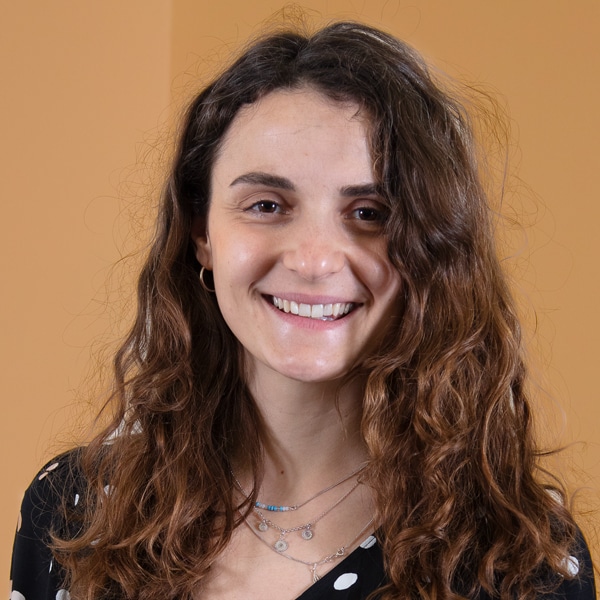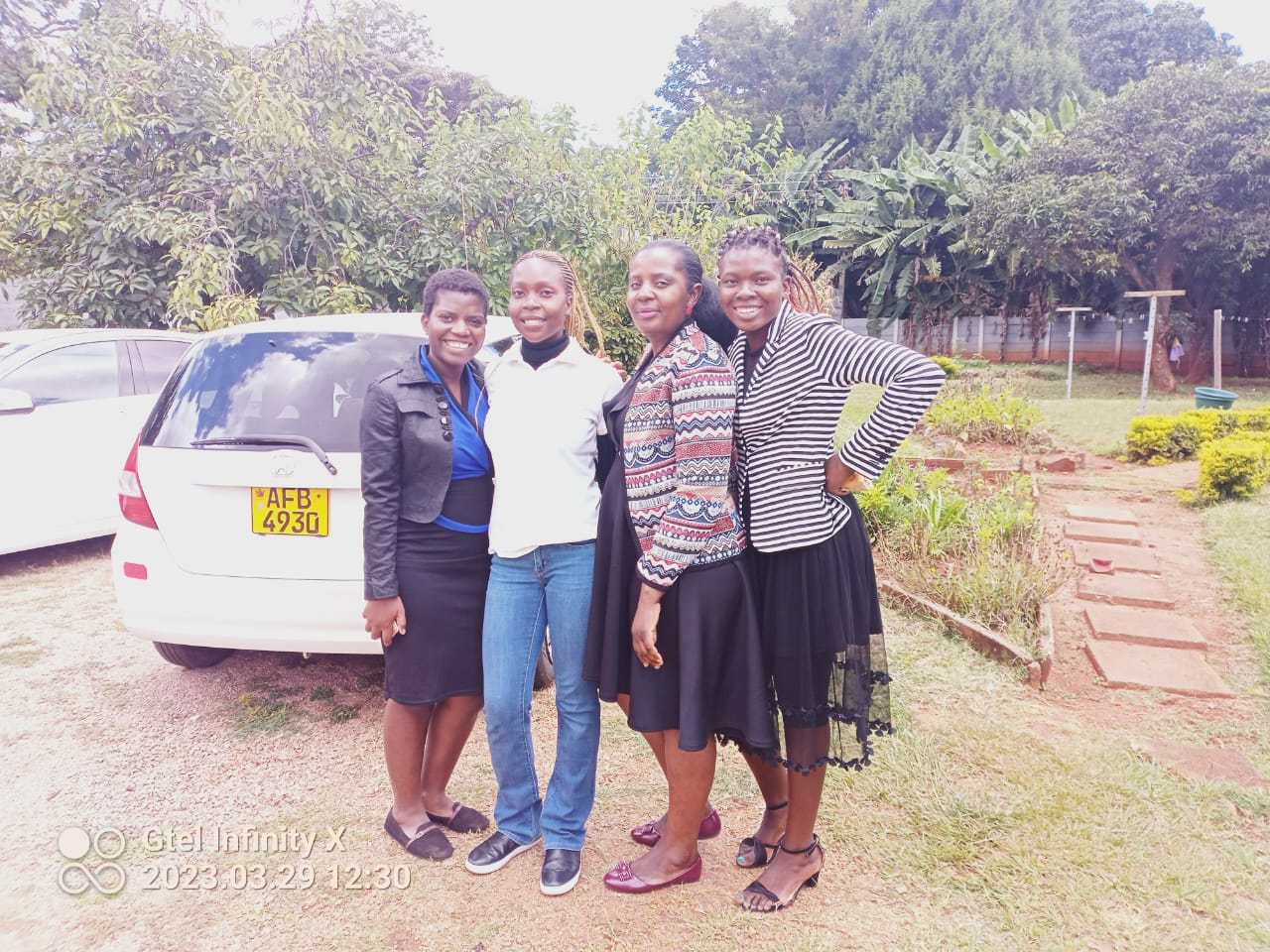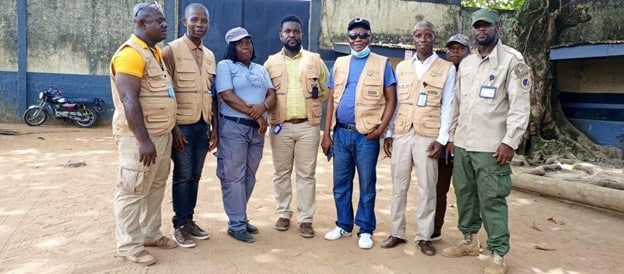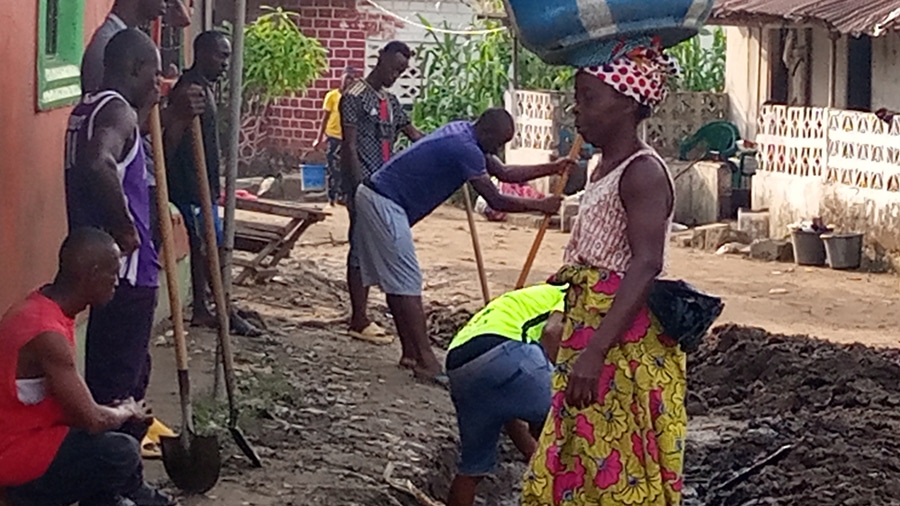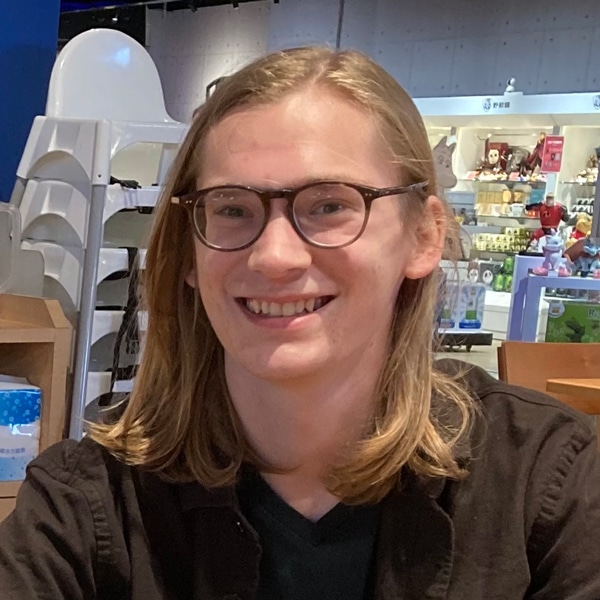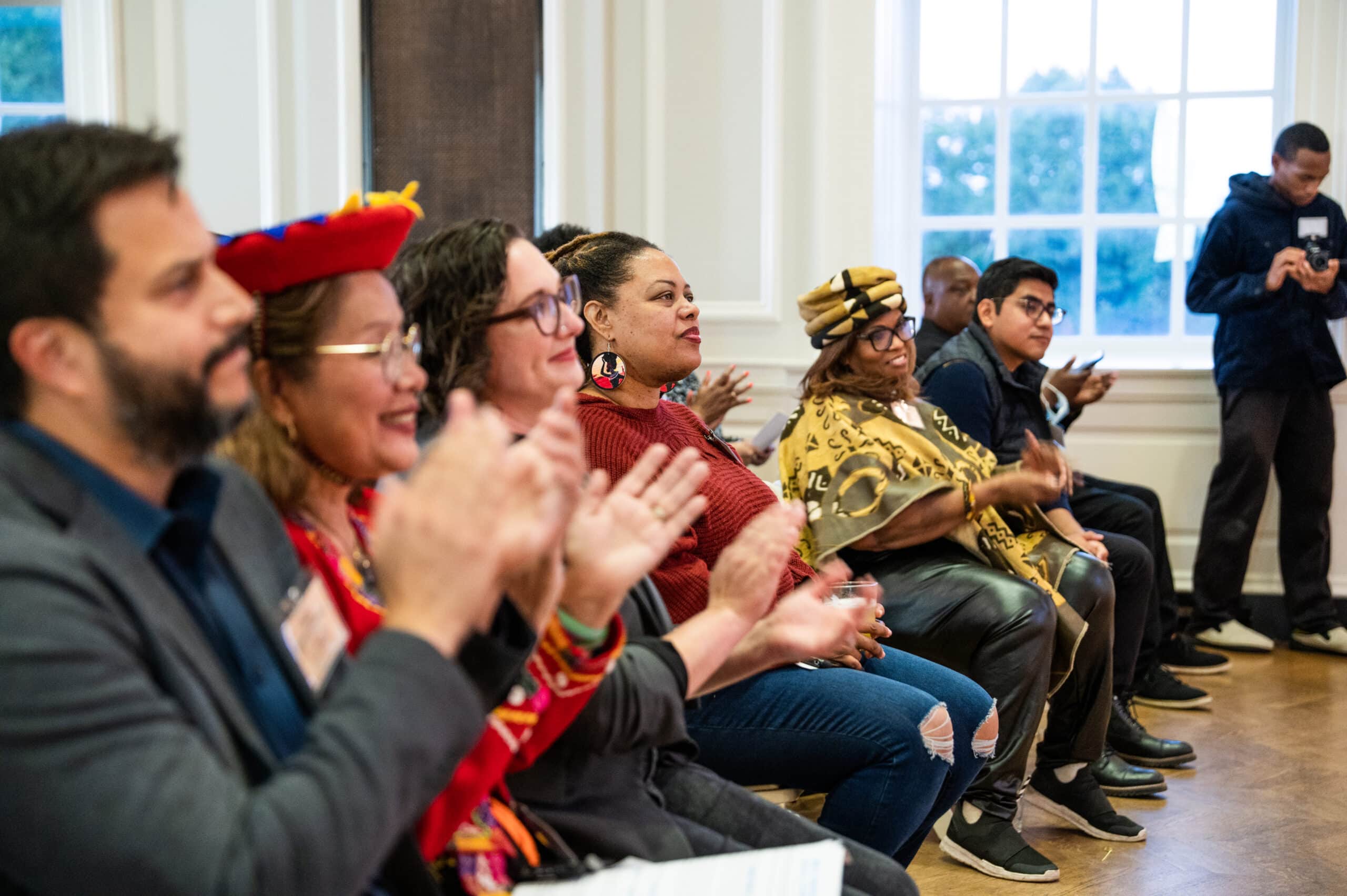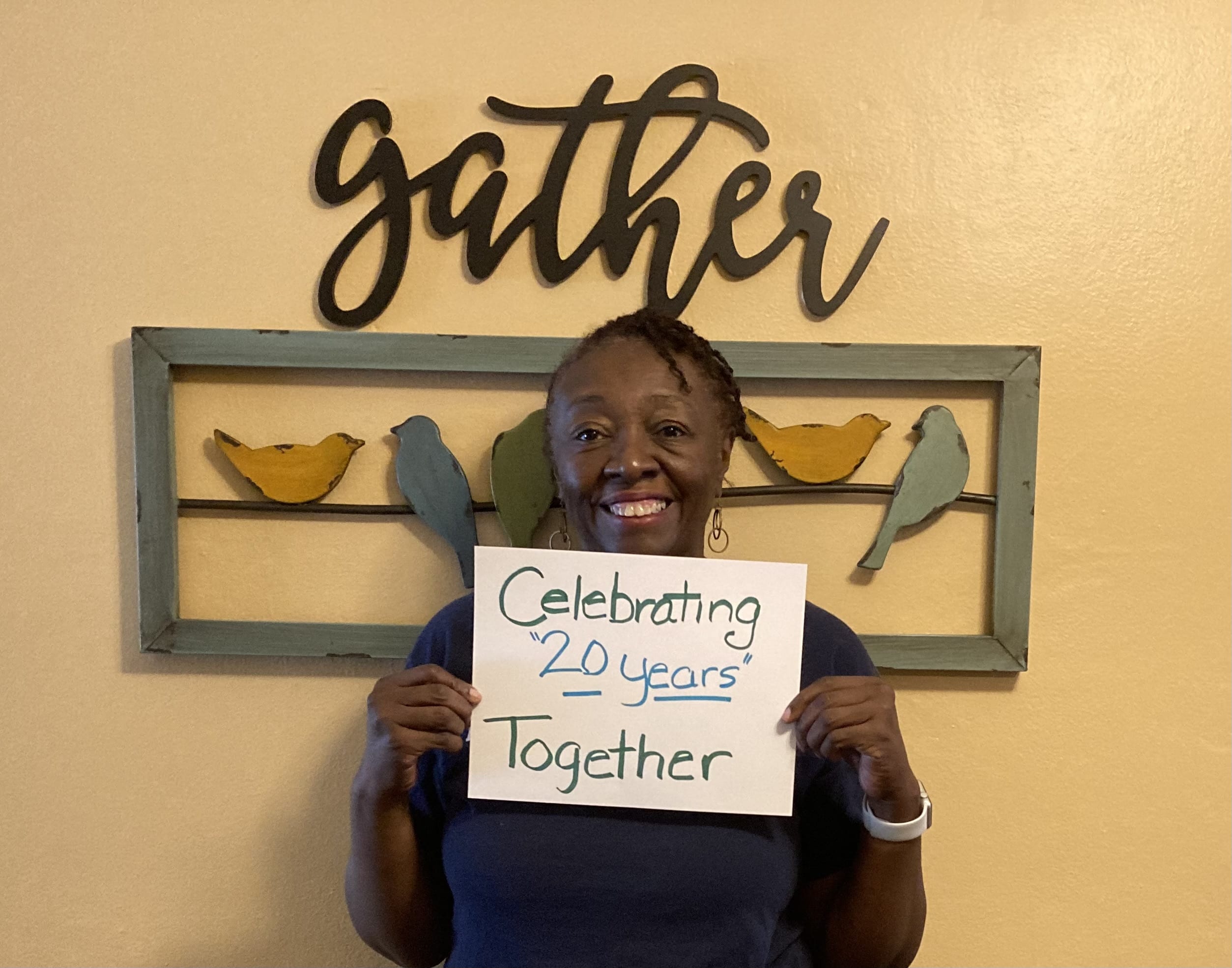Mapping a Community Vision in Sri Lanka
As part of her Goldin Global Fellowship, Sashikala Lakshman, from Sri Lanka, held her Community Visioning Summit in Rawathawatta East, an area just south of the capital Colombo. This gathering was designed to identify and address the prevailing challenges faced by this area collaboratively.
Participating in the 2023 Goldin Global Fellowship made Sashikala, who believes in our collective responsibility to safeguard children's rights, a more skilled community worker. She emphasizes the lessons from the asset mapping exercise under the Fellowship.
Speaking to the Goldin Institute, Sashikala highlighted the importance of the Fellowship lessons and the utilization of the GATHER platform in successfully implementing her event, which drew active participation from a diverse range of stakeholders, totaling approximately 50 attendees representing various categories.

A Sense of a Shared Purpose Among Diverse People
The Community Visioning Summit opened with a comprehensive overview of the Goldin Global Fellowship program and the Community Visioning Summit, elucidating the shared objectives and mission.
“In a spirit of inclusivity and community building, each attendee had the opportunity to introduce themselves, providing insights into their respective roles within society and their contributions to its betterment. This initial interaction fostered a sense of camaraderie and shared purpose among the diverse participants, laying a solid foundation for collaborative discussions and problem-solving throughout the summit.” Sashikala says.
She further elaborated on her goals to harness the assets and talents within her community to address the challenges effectively: “The primary objectives were to engage with community members, identify their most pressing issues, and collaboratively develop a concise three-month proposal for addressing these challenges while simultaneously constructing an asset map of the community.”
The summit was attended by a diverse group of community members including the Divisional Secretary of Moratuwa, Viharadhipathi Thero of the Rawathawatta temple, Moratuwa’s Probation Officer, the Principal of the Roman Catholic School, the Grama Niladari, the Chief Nursing Officer from the MoH Office, teachers and students from the Roman Catholic School, and as well as other community members. Additionally, respected elders from the community and staff at Sarvodaya, community-based development organization in Sri Lanka, contributed their valuable insights and expertise.

Asset Mapping - A Stronger Community Will for Change
Mapping community assets, a skill learned and discussed during the Fellowship weekly roundtables, proved to be a unique value during this event. Sashikala notes: “During the summit, the asset map that had been initially identified was presented, and participants were actively encouraged to contribute by identifying additional assets within their reach. This interactive approach enriched the asset map and sparked lively discussions among attendees.”
She further believes that because of the enthusiastic participation, the asset map and the summit demonstrated a shared commitment to community development and a genuine interest in identifying and leveraging the resources available to create a stronger, more resilient Sarvodaya and Rawathawatta East.
In addition to the initial asset maps identified before the summit, Sashikala shares how participants eagerly enriched the asset map. For instance, she brings valuable insights from crucial Sarvodaya representatives, enriching the asset map with various resources and services. “The manager of Sarvodaya's End Poverty Knowledge Center emphasized the significance of assets like Sarvodaya Central Library, SDGs Academy, End Poverty Knowledge Center, and Sarvodaya Institute of Higher Learning. These institutions were acknowledged for their pivotal roles in providing essential services to the community, fostering education, skill development, and knowledge dissemination.”
Some other additional assets identified after the summit are Vishva Niketan, Suwasetha Child Development Center, Roman Catholic School, Buddhist Temple, Sarvodaya Store, Probation Office, Grama Niladhari Office, and the engagement of community members, volunteers, children, and youth.

Stakeholders Appreciating the Initiative
At the summit, Sarvodaya's Vice President, Neetha Ariyaratne, highlighted the challenges experienced by low-income families and children due to the economic recession, including the alarming issue of parental drug addiction, which poses a significant threat to child safety in East Rawathawatta. She emphasized that Sarvodaya is actively involved in addressing these issues through orphanages and daycare centers and encouraged attendees to provide information regarding children in need of assistance.
The principal of the Roman Catholic school underscored the pivotal role of schools in identifying and addressing local problems, emphasizing that schools serve as microcosms of their communities, with children from diverse backgrounds and age groups. He advocated for securing the future of school children, expressing concern about the pervasive issue of drug-related challenges affecting their lives. Many disciplinary problems have been identified in their school, and the principal thinks that children and parents should be informed about this. He suggested that the parents in the Rawathawatta area should be made aware of these problems through entertainment programs.
Viharadhipathi Thero said that community support in solving these problems is minimal and that there should be more community participation in implementing programs. The members of Sarvodaya particularly pointed out that the involvement of children is significant in finding solutions to community problems because they are the ones who make decisions regarding the future of the country.

Infusing Positive Change Together
Sashikala emphasized the inclusivity of the event and the strength of a collaborative, participatory approach to addressing community issues. “Importantly, the summit was recognized as more than just another program; it was perceived as the starting point for concrete actions to tackle the challenges identified,” she adds.
Based on the reflections and feedback from participants, a network will be promptly established, including all attendees. “This platform will facilitate ongoing communication, ensuring that everyone remains informed about the program's future actions and allowing for continuous progress monitoring. This collaborative approach will be crucial in turning the identified challenges into actionable programs, driving positive change, and creating a brighter, more resilient future for all residents of the Rawathawatta East area.” She leaves us with a message of unity and hope by highlighting that people can enable change together.

Empowering Women Through WhatsApp in Zimbabwe
By Munyaradzi Dzimunwe, Global Fellow from Zimbabwe
Recently, I have been receiving a wave of requests from women and girls from various places in my country, Zimbabwe. Most of the women have heard of or seen me leading different initiatives designed to empower women here. They are requesting mentorship and coaching support from me. Upon deliberating this demand for some time, I decided to create a small pilot program aiming to work with around 20 women. Leveraging my newly acquired community leadership skills from the GATHER program, of which I participated in 2021, and the power of technology through WhatsApp multimedia capabilities, I created a 3-month online mentorship curriculum, entitled 'YPreneur 23'.
Within two weeks of starting, the WhatsApp group attracted 150 members! Women, ranging between 19 years and 63 years, joined through the open invitation link! I was surprised to see this happening. The engagement was remarkable; it indicated to me that empowerment through mentorship and coaching was what most women needed. Equally, it was a proof of concept since I have always had the wish to start an academy for women and girls. Excitedly, I invited my colleagues to join me in coaching the 150 women who joined the online program.
The 3-month curriculum covers topics such as personal development, career guidance, grooming deportment and etiquette, project management, personal branding, and entrepreneurship skills. The sessions happen twice a week, Tuesdays and Thursdays, for about 90 minutes. We use photos, video recordings from their smartphones, voice messages, texts, and file attachments to facilitate learning, exchange, assignments, and reporting. The program uses a mix of both English and the local languages familiar to participants.
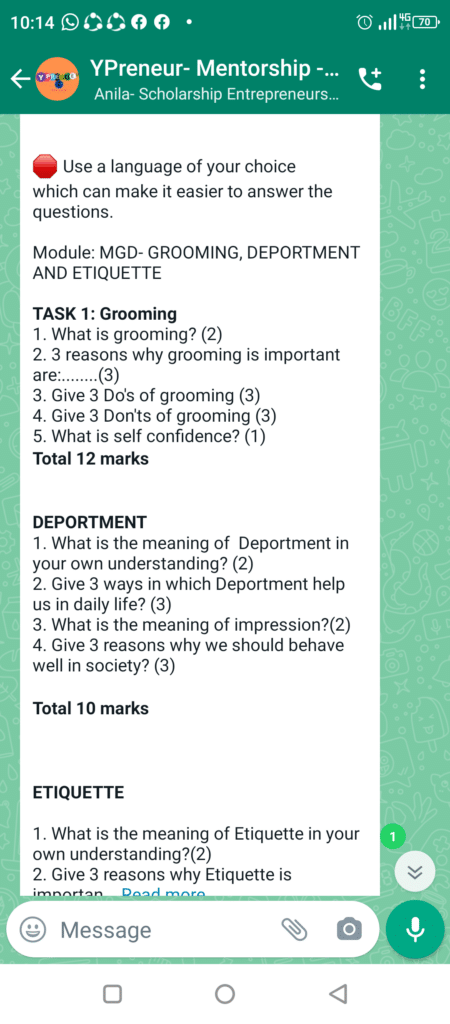
We hope to complete the curriculum for this first pilot project on the 4th of May 2023. If everything goes well, we will celebrate this achievement by awarding participants with certificates of completion. It will be a great moment for us to evaluate, reflect, and plan the road ahead. Based on the assessment of this first cohort, my colleagues and I will figure out the best ways to improve and even formalize the process to align with the vision of creating an academy for women.
It strikes me as a miracle that we managed to get this to work done just with WhatsApp. The challenges faced by participants (i.e., a lack of budget for internet bundles, inaccessibility of platforms such as Zoom and Google hangouts, intermittent internet, and electricity etc), the WhatsApp platform somehow works because participants can tune in when they get internet to read through materials, follow up on voice recordings and complete assignment at their own pace.
I am very pleased to see that the program is changing the lives of girls and women in my country. Below are some feedback and testimonies from some participants which were shared as voice messages on our WhatsApp platform:
"I have learned to leave my comfort zone, to be out there and connect with people. I have learned to push myself to see my needs. I have no time to be on my phone the whole day like be on social media or Facebook. Now I am always on my books or reading something, and that is new I have learned it from this program. I’m not the reading type; I didn’t know I had it within me to be the reading type. So now I’m learning, I’m getting there." - workshop participant
"With this personal development program I have managed to improve one crucial area, and I think that is the stepping stone for the rest of my development goals. I managed to step out of my comfort zone, I was one person who was so afraid of failure, that I was in my comfort zone all the time and I wasn’t able to expand myself. Through this program and the motivations and teachings I got from this group I managed to volunteer for a charity organization called the Foundation of Hope. I did this because I’ve always been a person who wants to uplift her community." - workshop participant
In other updates, I engaged my students to write essays reflecting on the International Women’s Month celebrations. This exercise took place on the 29th of March and involved a series of mentorship where 12 girls were matched and paired with mentors for career guidance and counseling. I was also invited to speak at the gathering of Women Enterprise International (WEI). In my speech, I encouraged the beneficiaries to learn, work together, and combine resources to achieve sustainable projects. The WEI supports women entrepreneurs with business coaching and mentorship.
I am also proud to report that three women from the project ‘YPreneur 23’ got an opportunity for free digital marketing training. The economic empowerment program provides free coaching and mentorship to uplift women out of poverty.
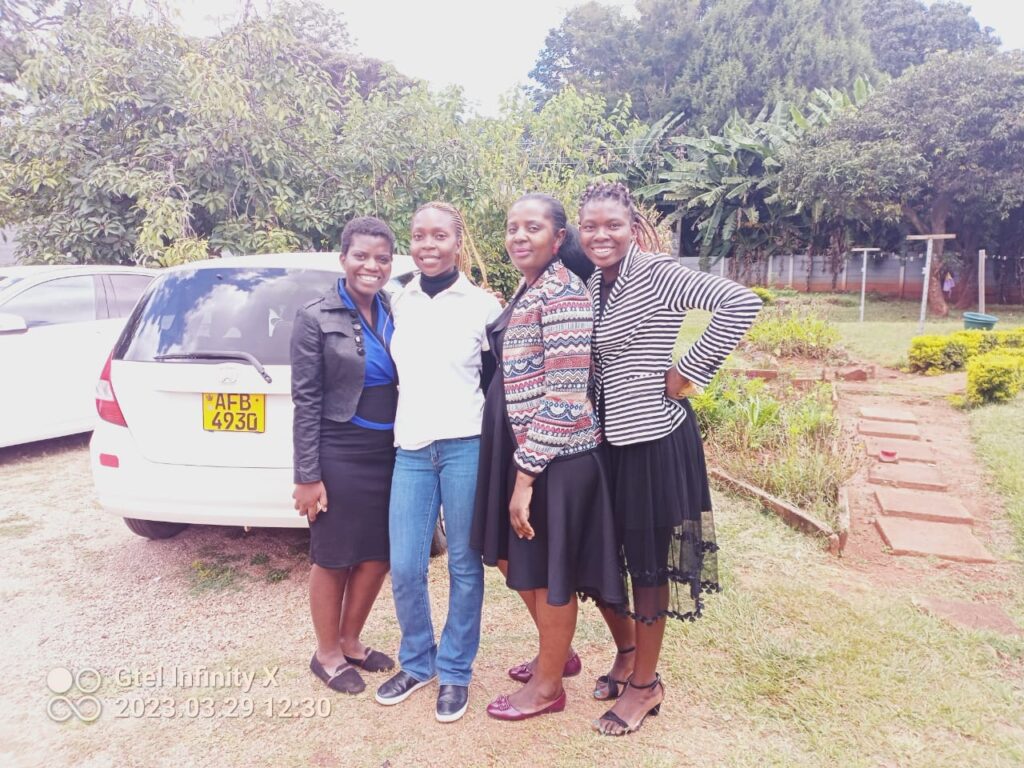
Promoting Justice for Detainees in Liberia
By John Kamma, Global Fellow from Liberia
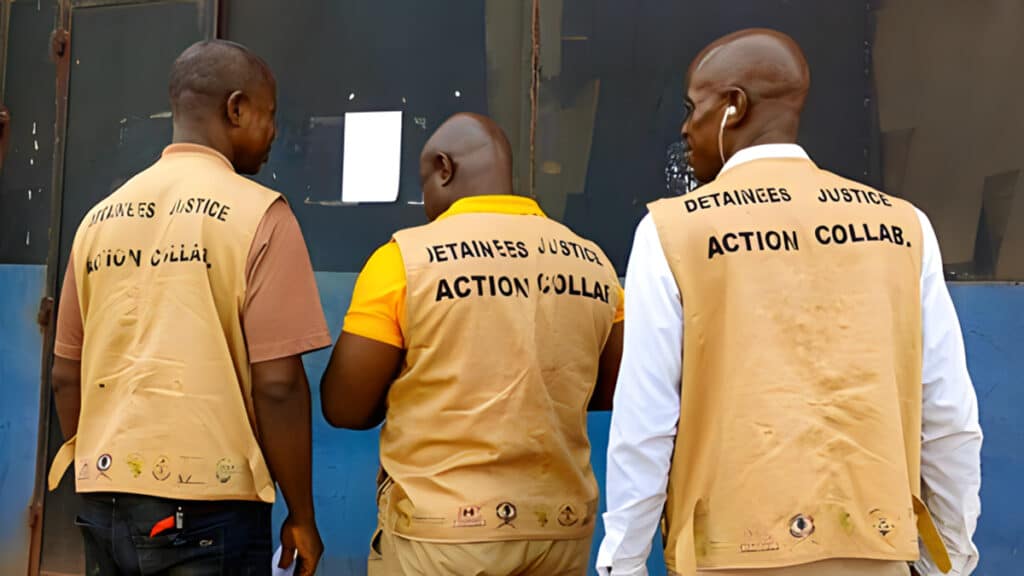
It is with great joy that I announce that I have won a €10,000 Euro grant from Catalyst 2030 to pilot a project focused on detainees in Liberia. I have already secured a permit from the Ministry of Justice to visit prisons and start working with detainees to review their cases. Together, with my local learning partners and the advocates, we will identify detainees whose rights have been violated and provide legal support to facilitate access to those rights.
“Today, we visited the Monrovia Central Prison and interacted with Prison authorities who were very pleased about our intervention to bring justice to the life of pre-trial detainees. This is a step toward our data collection process that will be used to advance evidence-based advocacy, demanding due process of law for pre-trial detainees in a competent court of jurisdiction.”—John Kamma
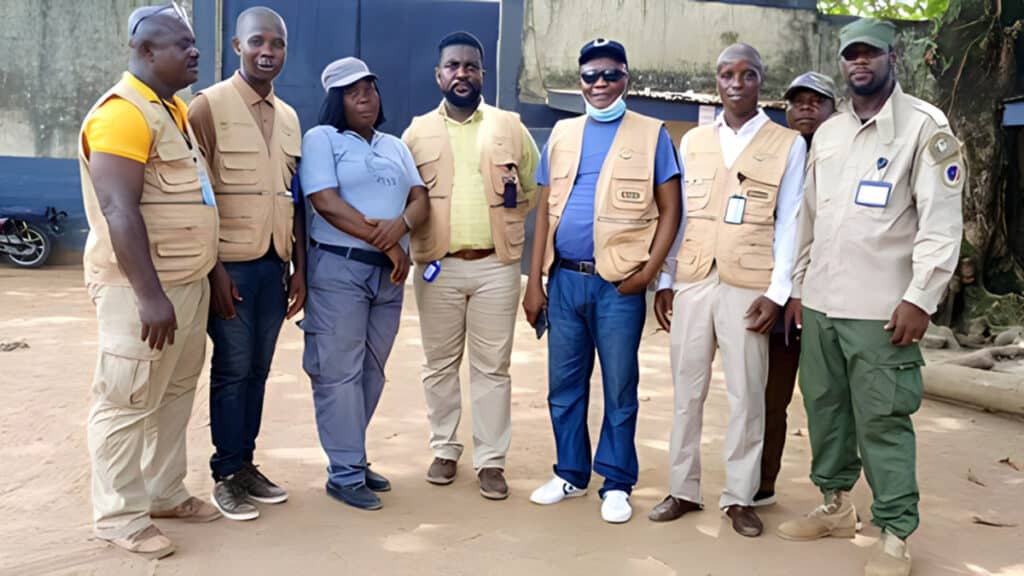
The project, Detainees Justice Action (DJA), seeks to; promote access to justice among detainees, support their integration back into the community, and provide sustained mental health support. We just started in Monrovia but the permit from the Ministry of Justice allows our project to scale across the country. The three-month pilot phase is now focusing on the identification of detainees whose legal rights were not met. Afterwards, we hope to start addressing the issues in court with support from the advocates.
Between June and December 2022, I was engaged in an extensive training program led by the African Civic Engagement Academy (ACEA). During that period, I had an opportunity to learn with over 2,000 participants coming from across the African continent. I applied for this opportunity because I understand that our work in the community requires constant learning, research, and networking. Throughout the program, I was exposed to knowledge about basic principles of civic engagement, inclusion, media management, non-profit management, and program design.
The whole program was conducted online, featuring multimedia content designed to expose us to different theories. I also learned a lot about practical applications from other participants. We exchanged experiences based on our unique actions in our respective communities. I was particularly impressed with the lessons surrounding the need for partnerships and collaborations. We learned that extending partnerships with the government and other civil Society Organizations can increase our chances of success in tackling the issues we face.
“Ensuring that the government does not see you as an obstacle is key to improving relationships, obtaining support, and achieving collective goals. Sometimes the government already possesses important information that is necessary for our work to be successful.” — John Kamma
Last year I was training at the African Civic Engagement Academy and whilst there I submitted a Civic Engagement Action plan detailing the work of Detainees Justice Action. This led to my recent invitation to attend the 2023 ACEA Summit which takes place tentatively on March 17-19 in Nairobi. I am so glad for this opportunity and I’m looking forward to it.
“The reviewers at ACEA selected me for the Summit because they were impressed with the quality of my Civic Engagement Action Plan and with my participation in the ACEA training last year.” —John Kamma
African women are brave, and there cannot be just one day to celebrate them
By Diana Alaroker, Global Fellow from Uganda
In Northern Uganda, where I grew up, educating a young girl like myself was not a priority. My culture is patrilineal, so my worth would have been negligible in many other families. Indeed, the dropout rate for girls in my region is 78% for primary school. Girls are a currency of exchange, many of us groomed to be housewives from the age of ten. And at the age of seventeen, we are considered ready for marriage. As early as 5am, while it is still dark, very quiet and cold outside, the day has begun for an African woman. Her tasks are largely domestic, including housekeeping, child rearing, fetching water, cooking and tending to the community’s needs. Women in Uganda work two thirds of the total labour hours and produce 70 percent of the nation’s food, yet earn only 10 percent of its income and own less than one percent of its property.
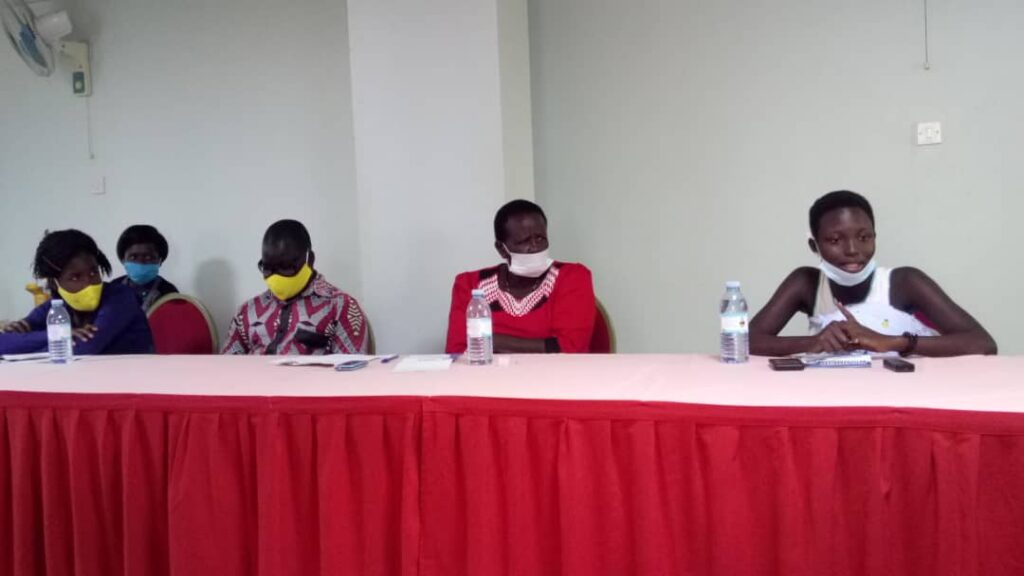
Many African women awake to responsibilities which are overwhelming and challenging at times, responsibilities they have to face as and when they come. The countless sacrifices that they make just to see their children and spouses happy can never be paid back; they are priceless.
Polygamy, which is a norm in the Acholi culture, makes the situation worse, which exacerbated after the conflict in Northern Uganda. Men often elope with other women with whom they feel they are “better off,” leaving their wives with the responsibility of raising the children and providing for the family. For the woman who has been deserted, playing the role of both parents in the lives of their children is quite challenging and hectic.
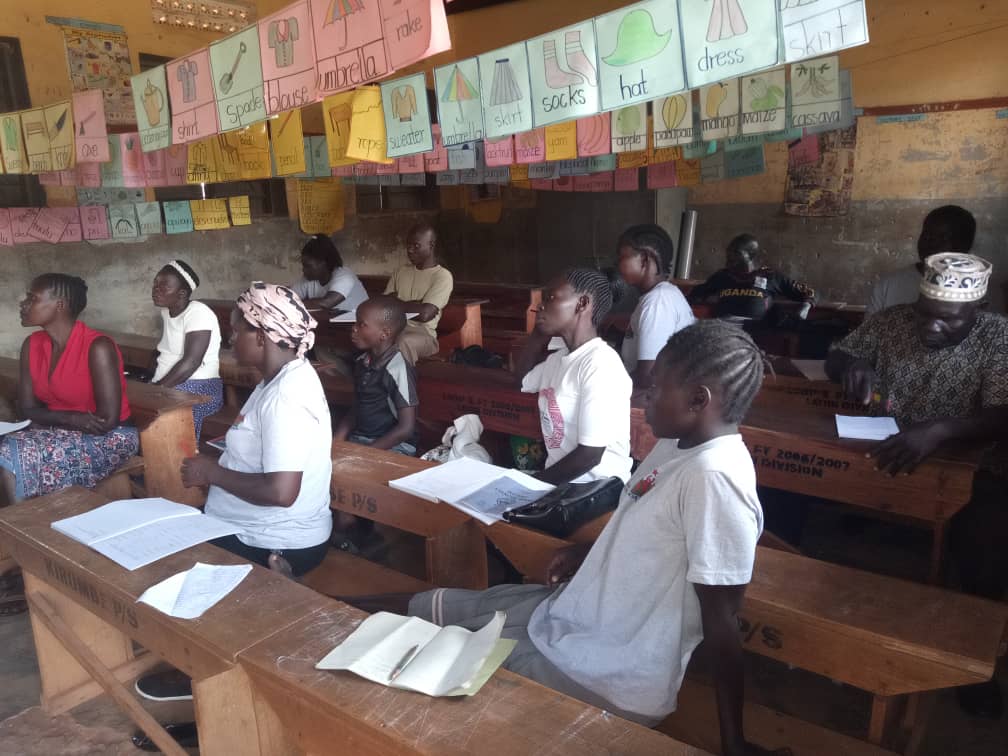
With little or no education, they are unable to get employment in any formal sector, so most of them opt for small businesses, which usually generate little profit, but give them time to attend to their responsibilities at home. And with these small profits, they are able to send their children to school to attain education which they themselves were unable to get.
African women are brave, and there cannot be just one day to celebrate them. Every day should be a day where we respect the dignity of women.
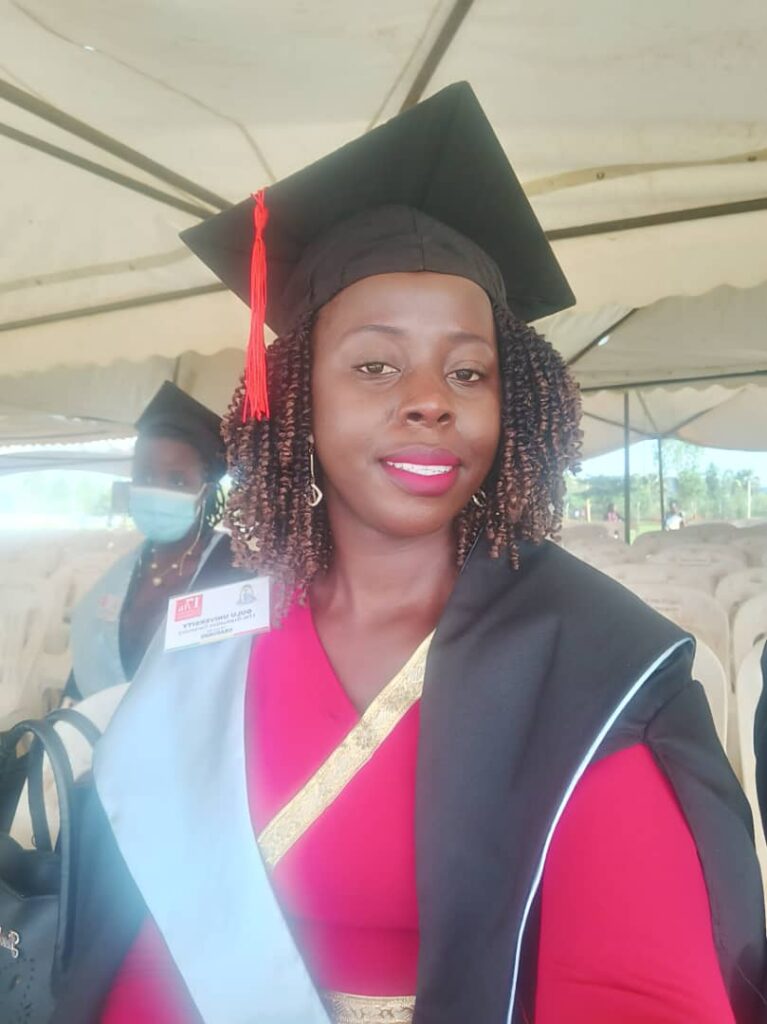
Black Star Project Showcases Careers in Sports at the NBA All-Star Weekend
By: Zeki Salah, Communications Associate
The Black Star Project recently partnered with BDM Sports & Education Project to send Chicago students to Salt Lake City to learn about careers in sports at the NBA All-Star Weekend from February 17-19. This trip marked the third year that the Black Star Project has sent young people to the NBA All-Star Weekend to provide them with an inside look at the professional world of basketball and with a fun weekend of basketball events.
Brian McCoy, or Coach Q, began the BDM Sports & Education Project in 2014 with the goal of making a positive difference on the South Side after repeatedly hearing about violence on the news. “What I know is that a young person can’t shoot a gun and a ball at the same time. So I went to one of the roughest spots in Chicago and said, ‘Hey, I want to do a free sports camp for young kids’ [...] I think the kids I spoke to felt my sincerity because I gave them a clipboard and when I returned later the clipboard was filled on both sides.” Coach Q then went to his contacts in community activism and education, including Gloria Smith, a 2020 Chicago Peace Fellow, and approached them about starting a youth sports camp, with a focus on the business side of sports. He held his first camp in Englewood in 2014 and has continued to hold basketball camps, baseball camps, and most recently an introduction to golf.
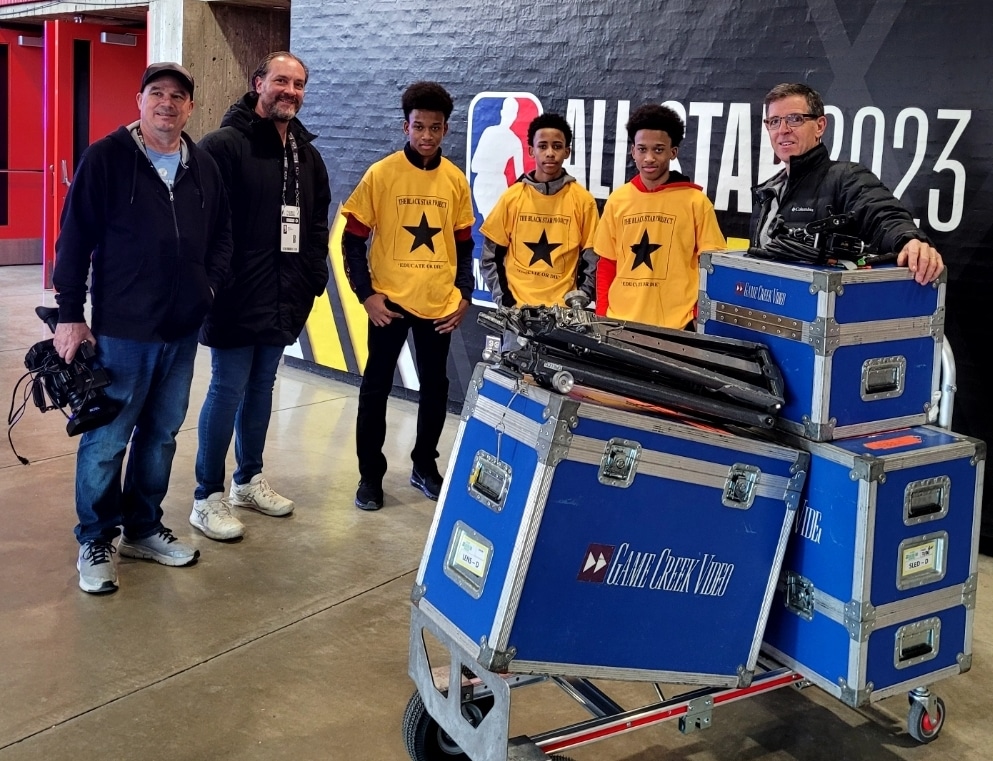
The trips to NBA All-Star Weekends have been held by Coach Q and the Black Star Project for the last three years. The trips aim to combine an introduction to the business of sports with a fun weekend for teens on the South Side. The trips place a focus on academics and include essay contests before and after the trip. In prior years, the Black Star project has chosen participants for the trips based on essays that they write on their interest in a career in sports. This year, an essay contest is being held for a cash prize following the trip. Coach Q and the Black Star Project also provide a ten week business of sports curriculum leading up to the trip, which allows the young people to learn about the different professions within the sports industry before they go on to meet them at events such as the All-Star Weekend. Speaking to the idea of synthesizing the business aspect and sports aspect of the trip, Coach Q said:
The average young person wants to be the next Lebron James, but in actuality, the probability is really slim [...] So, what I try to do is let them know that it’s okay to have dreams, but let them know the reality of the situation and ask: ‘What are you really looking for?’. By taking them to the game you can show them both sides, the excitement, but also the thousands of people making that game happen. There’s a camera man, a sports physician, a sports attorney, an agent, a sports statistician, a kinesiologist; there’s so many different careers involved that no one ever talks about.
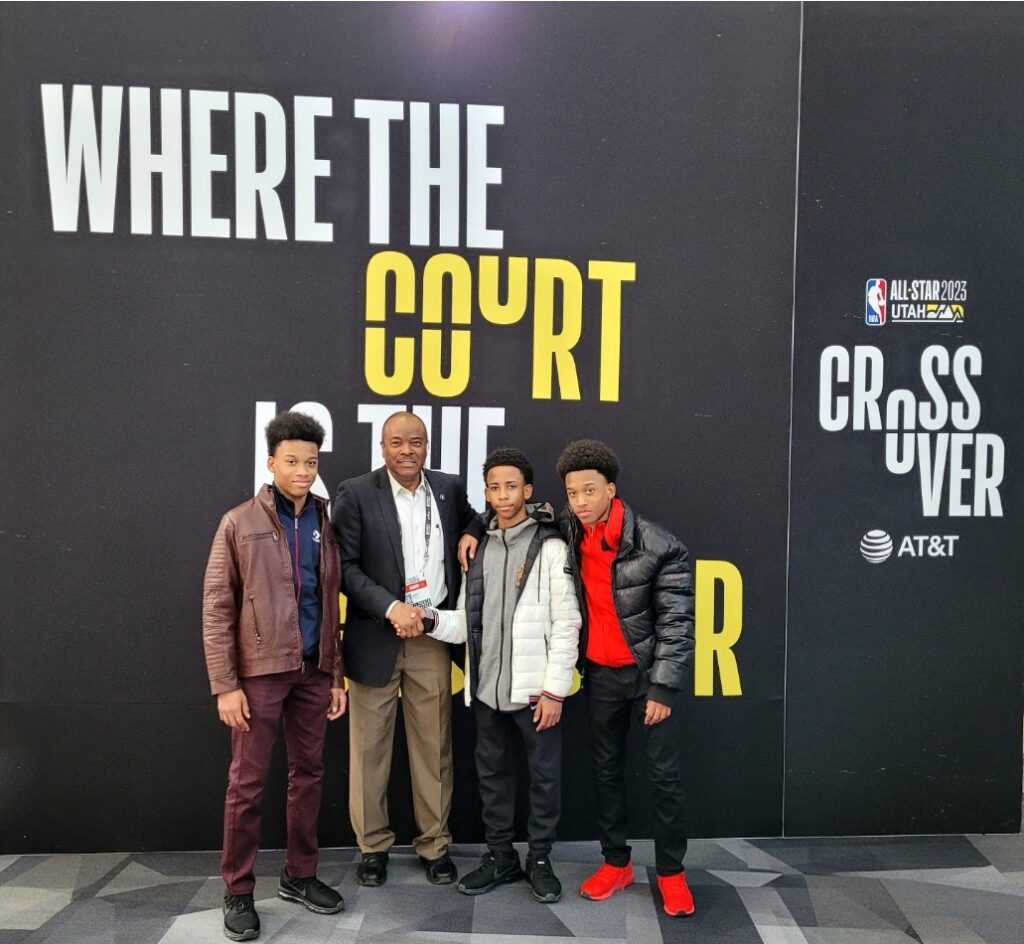
The Black Star Project took the lead on programming and fundraising for the All-Star weekend, while Coach Q accompanied the young people and introduced them to professionals in the sports business. The first event they attended was the HBCU Classic, an annual basketball game between two Historically Black Colleges and Universities (HBCUs) that was started by the NBA to show their commitment towards social justice in response to boycotts during the Black Lives Matter movement. The young people on the trip also participated in an HBCU college fair and learned about the NBA’s HBCU Fellowship program, which aims to provide career development opportunities in the business of basketball for undergraduate and graduate students from HBCUs. After the fair, the young people were also able to meet and greet with sports business professionals.
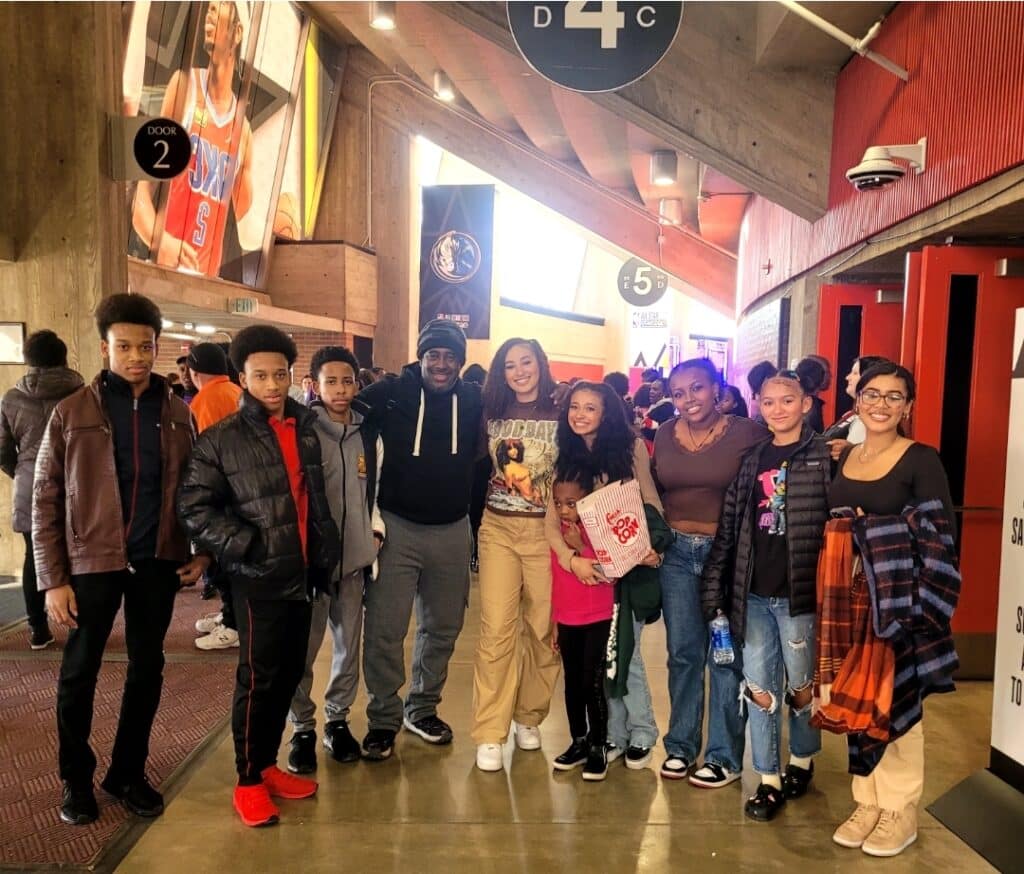
Throughout the weekend, programming combined both opportunities for the young people to have fun and enjoy basketball programming and an inside look into potential careers. The young people on the trip were able to have dinner with Rev. Jesse Jackson, who attended the University of Illinois on a football scholarship. He provided insight as to how entering the business of sports could allow an individual to transition to other careers, such as career as a minister and civil right leader. There was also a more leisurely section of the trip where the young people attended the NBA Crossover, which is a multi-day interactive fan event that brings basketball culture to the forefront, featuring player appearances, live performances, art, and music. Combining both business and pleasure helped the young people think about their futures in a fun and energetic setting and provided them with a one of a kind opportunity.
Coach Q and the Black Star project aim to continue to hold trips to NBA All-Star Weekends for young adults on the South Side. They hope to not only hold trips to the NBA All-Star games, but also to the WNBA All-Star games so that young women can get involved as well. The next WNBA All-Star game will be held in Las Vegas in July. You can support the Black Star Project and their efforts to send students to these games to learn about the business of sports here.
BDM Sports & Education Project's (Powered by the Black Star Project) 4th Annual Youth Business of Sports Essay Contest
Following the trip to Salt Lake City, BDM Sports and Education Project held an essay contest for high school students with the following prompt: "The average NBA playing career is about 5 years, how should players maximize their opportunities for personal growth and professional development, during their time playing in the league, while also preparing for when their NBA playing career comes to an end... Life Beyond the ball?"
Winners of the contest include:
1st Place Winner ($1,000): Brandon Williams-Orr, Providence St Mel HS
2nd Place Winner ($500): Aaron Williams-Orr, Providence St Mel HS
3rd Place Winners (Tied) ($250): Laylah Richmond, Bolingbrook HS and Antonio Scott, Little Black Pearl HS
A Look Back on 2022: a year of growth and strengthened solidarity around the globe
By Jassi K. Sandhar, Global Research Fellow
As we wind down the end of another year, I am amazed at how much we have achieved within our network and the strides we have made, both as individuals and as a collective. Our global network and partners continue to accelerate their efforts to attend to the most urgent and pressing needs of their communities. We witnessed increased levels of solidarity, more calls for positive action, strengthened collaborations and shared leadership. We end this year with 150 alumni (representing 40 countries) who have graduated from our Fellows Program and are now part of our wider network.
We have compiled a month-by-month timeline of the achievements of our grassroots leaders below. Despite some challenging times, our network continue to respond with compassion, empathy, and commitment to social justice. We end the year by thanking our dedicated supporters whose commitment made many of this year’s successes possible. We look forward to your continued support for community-driven social change in 2023!
January
We commemorated the 12th anniversary of the Haiti earthquake (which had a devastating and lasting impact on the country), by sharing an update on the current situation and launching our “Global Solidarity with Haiti campaign” to support our partners Daniel Tillias and Malya Villard-Appolon, who are on the frontlines responding to those most in need.
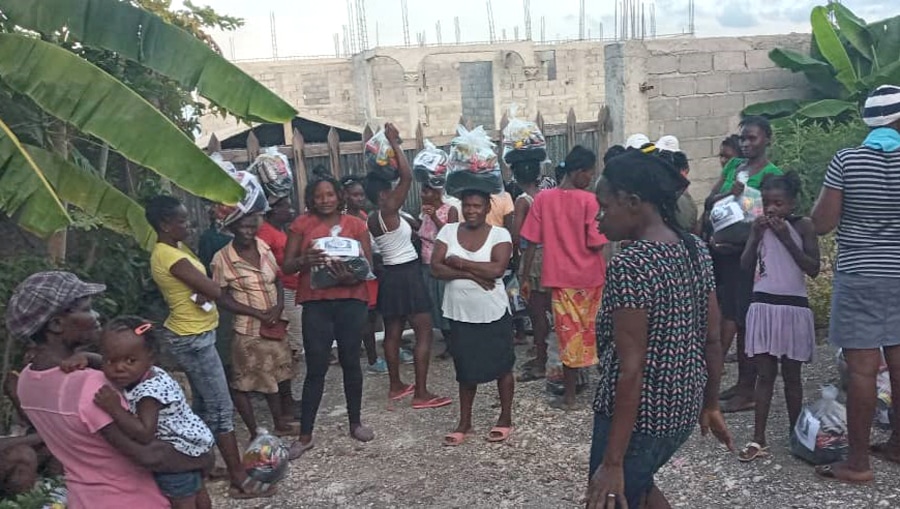
Our alumni in Liberia, Jennifer Henshaw, and her organization LEGAL which works to support the LGBT communities in the country, celebrated their 10th anniversary. Jennifer provides a reflection on their 10-year journey, including their long-standing achievements and ongoing challenges.
January was also a month of collaboration between our global partners. Our partners in the Philippines, Andy Alegre and Susana Salvador-Anayatin, joined forces to deliver urgent humanitarian relief to families following Typhoon Odette in the Philippines. Our 2021 Global Fellows Mathias Ngong Njoya (from Cameroon) and Gopal Iyer (from the UK) also collaborated to host a two-day workshop which brought together 30 youth from 15 countries in Africa and Asia. The workshop was designed to help and guide youth on professional development planning.
February
This month, our 2021 Global Fellows provided an update on their collective campaign; 24 grassroots leaders created a joint fundraising campaign to raise money to support their continued social change projects in their countries. Collectively they raised $12,000. John Kamma, 2021 Global Fellow from Liberia, used those funds to initiate a community clean-up day in Glass Factory community (which is an overpopulated but underserved community).
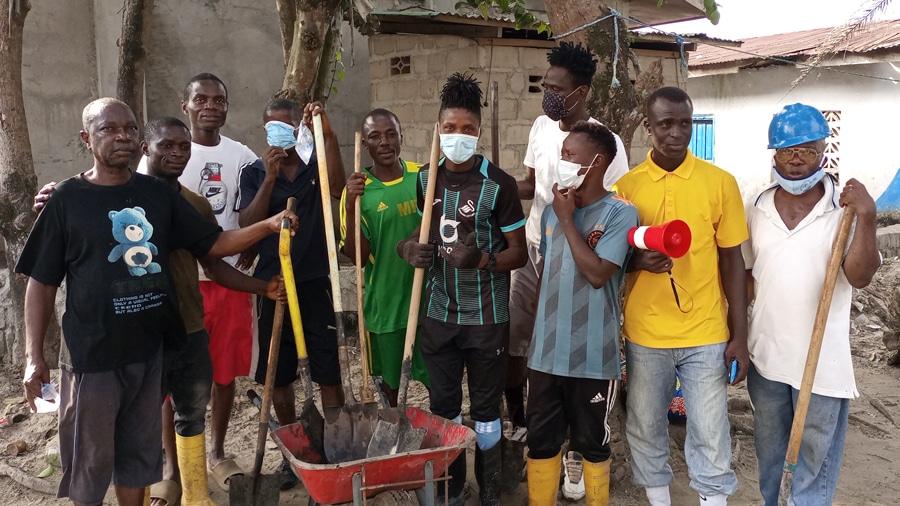
This month, the Chicago Peace Fellows Mutual Aid Collaborative also held a press conference on the anniversary of the assassination of Malcolm X to amplify the themes of their open letter, A Pathway to Anti-Racist Philanthropy.
2021 Global Fellow from The Philippines, Andy Alegre, commemorated International Day of Prayer and Awareness Against Human Trafficking by organizing an online prayer session together with churches and various organizations using a special vigil of prayer specific to this event. This month, Chicago Peace Fellow Jamila Trimuel’s organization also hosted their annual LOV Day, a day dedicated to “show love to our Black girls!”.
March
We welcomed our 2022 Chicago Peace Fellows! 14 grassroots leaders representing 14 different communities across Chicago joined the Fellows program to learn, share, and collaborate together as a Community of Practice.
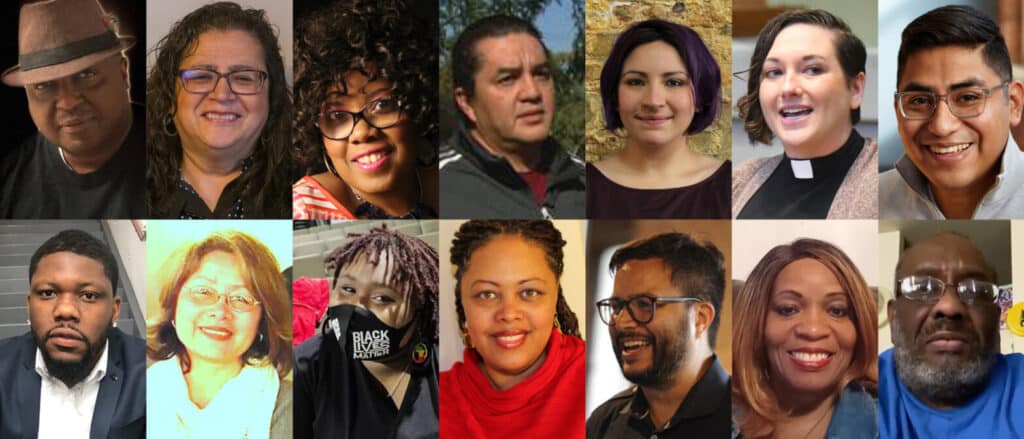
Our 2021 graduates of the Chicago Peace Fellows Program also organized and enjoyed a retreat, to collaboratively focus on rest, restoration and reflection in beautiful surroundings and to strengthen the bonds between them.
We also saw collaborations between DePaul University (Chicago) and Global Fellow Berry Behr (South Africa) which helped document oral history testimonies to capture the interfaith efforts from leaders on the front lines of ending apartheid.
April
Goldin Global Fellow Munyaradzi Dzimunwe from Zimbabwe partnered with She Trades to provide training for women entrepreneurs in the country to help them sell their products on international markets.
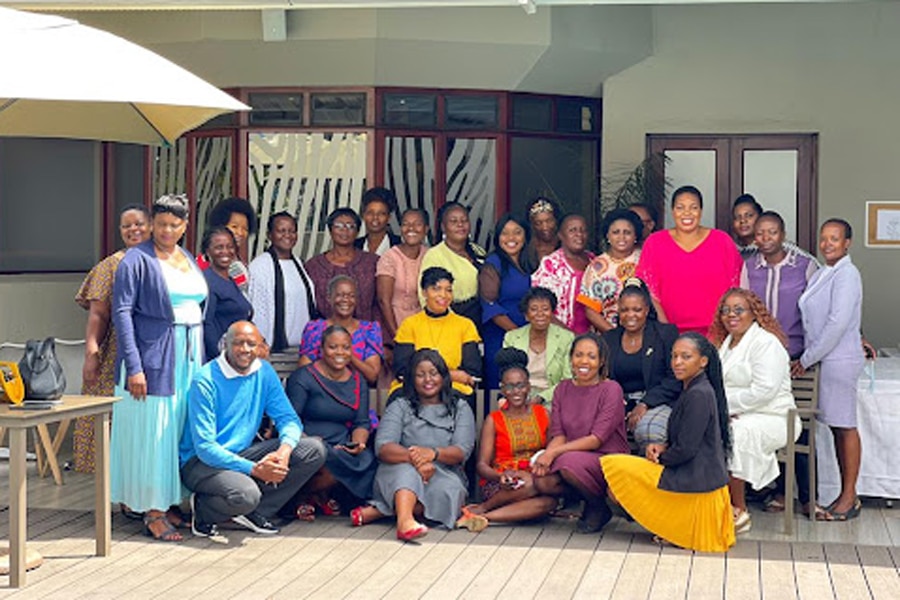
Goldin Global Fellow Nicholas Songora Odoll also provided an update on the critical work of the Manyatta Youth Entertainment (MAYE) in the coastal counties of Kenya to promote social accountability, civic education, and social justice using creative arts. Chicago Peace Fellow, Annette Kelly, also helped host a series of workshops on Violence Prevention in Chicago through her work with the Chicagoland Vaccine Partnership (CVP) in the communities hardest hit by COVID and violence.
The 2022 Chicago Peace Fellows also met for the first time to begin their Fellows Program; the launch brought together a powerful community of activists, artists, social workers, and community leaders representing 14 community areas on the South and West sides of Chicago.
May
Chicago Peace Fellows provided 300 Mother's Day bouquets to mothers who have lost their children to violence in Chicago, bringing comfort to families impacted by gun violence and raising support for peace building projects in Chicago to prevent these tragedies in the future.
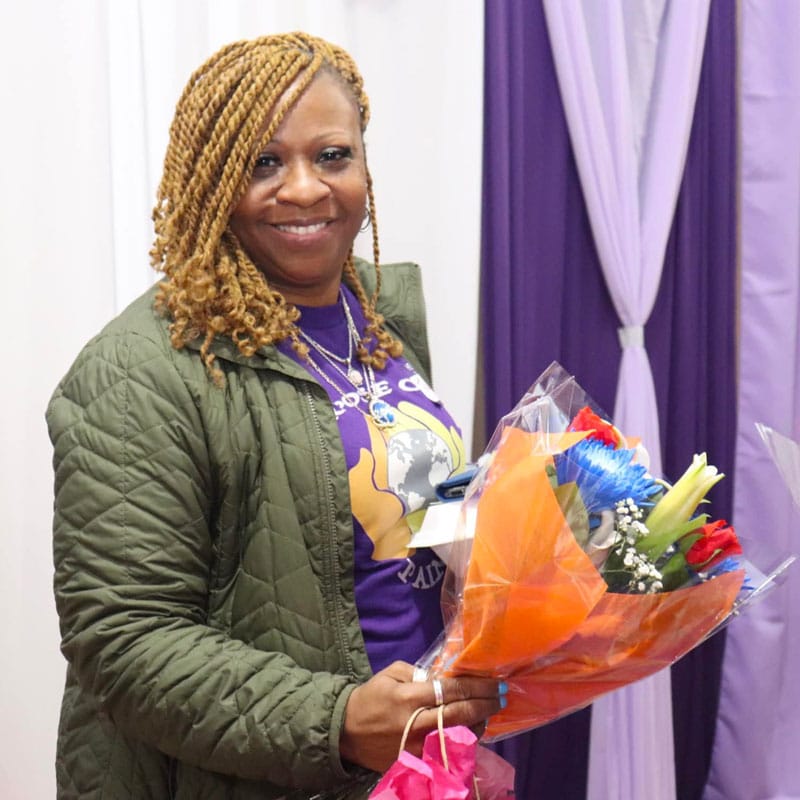
2018 Goldin Global Fellow Cynthia Luvlee shares an inspiring update from Shyne San Diego, sharing the principles that powered the exponential growth of the Shyne Survivor Business Network™ which recently enrolled its 50th survivor entrepreneur!
We also received an update from Global Fellow from Liberia, John Kamma, who worked in collaboration with Catalyst 2030 and his team to mobilize his community to improve health and sanitation and hosted a conversation on narrowing the "justice gap" in the Glass Factory neighborhood.
Mahdar Tahir, Goldin Global Fellow from Malaysia and founder of the Crescent Collective, shared his insights as a panellist for a discussion on religious freedom for which he spoke about the role of religious leaders in building social harmony.
June
In June we welcomed 14 grassroots leaders from around the world onto our 2022 Global Fellows Program! This is the third cohort embarking on the four-month program, where Fellows worked and learnt together as a Community of Practice.

The Chicago Peace Fellows Mutual Aid Collaborative held the Second Annual Concert for Peace at the Hatchery on June 4th, celebrating the artistic accomplishments of their communities and a shared commitment to improving their neighborhoods. The Mutual Aid Collaborative also worked to address an increased demand for blood from Black and Brown donors through holding the #OurBloodMatters blood drive as part of the ongoing project called The Safety Net.
Chicago Peace Fellows hosted a conversation at the Firehouse Community Arts Center on June 3 2022 to discuss community safety and crime data with the University of Chicago Crime Lab as part of the Mutual Aid Collaborative’s Civic Leaders series. This month, Chicago Peace Fellow Pilar Audain also partnered with theater company Collaboration to design and host Moonset Sunrise, a theatrical experience rooted in healing, self-care and collective growth through song, storytelling, dance and ritual.
To solidify and spread the benefits of the peace agreement in the Southern Philippines, Global Fellow Lo Ivan promotes the need to lean into the indigenous culture of volunteerism, known locally as "bayanihan", as a peace multiplier that shapes the Bangsamoro youth as proactive agents of peace, development, and social transformation.
July
In July we launched our first ever Global Fellows Program in Spanish! We welcomed 17 grassroots leaders and activists onto the program, who undertook the curriculum and engaged in the journey together in Spanish. These Fellows live and work in Argentina, Bolivia, Chile, Colombia, Haiti, Mexico, Spain, the United States and Venezuela.
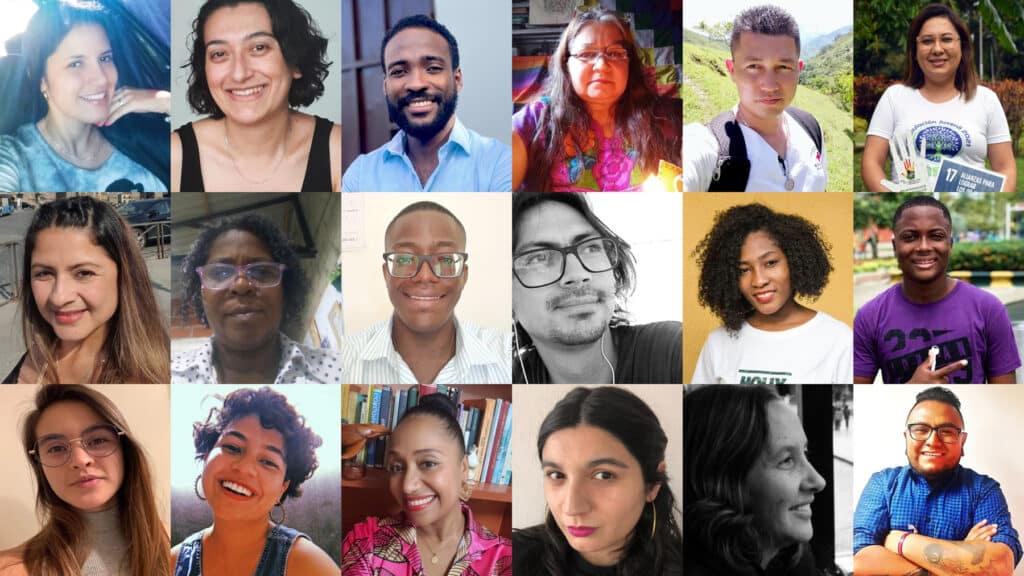
Chicago Peace Fellows Mutual Aid Collaborative hosted a Civic Partner Series conversation with University of Chicago Medicine Violence Recovery Team to learn about a unique public health model of violence interruption. And Global Fellow from Detroit, David Metler, provides insights into Swingset Activism and the idea of social justice education inspired by childhood. He proposes that we have much to learn from children who can help us integrate our activism into our lives and embrace the elements of playfulness, joyfulness, loving-kindness, presence, creativity, and our capacity to re-imagine what is possible.
August
The Chicago Peace Fellows Mutual Aid Collaborative this month carried out two activities. They launched the Safety + Cycling Team to tackle violence which occurs during road and traffic accidents, by providing bike helmets and safety tips at community events.
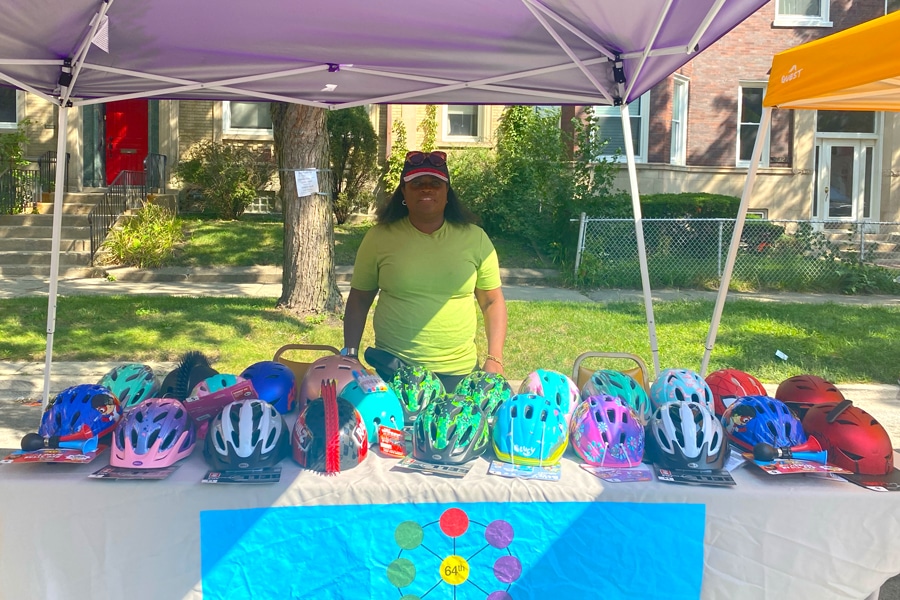
The Mutual Aid Collaborative also hosted a conversation with Dr. Andrew Papachristos to build connections and learn how the science of social networks can be used to understand and target support to people at the highest risk of becoming a victim of gun violence.
2019 Chicago Peace Fellow, Pastor Robert Biekman, piloted a Community of Practice utilizing the GATHER Platform to foster peer-to-peer learning amongst newly ordained pastors with the Evangelical Lutheran Church of America (ELCA). And Global Fellow from Argentina Diana Rocio Gomez Torres, explored the emergence of social movements across South America and bring visibility to the history and memory of these strategies of practical and symbolic resistance.
September
In September, our Fellows around the world embarked on several peacebuilding projects in honor of International Day of Peace 2022. These activities included: The launch of an apprenticeship program for Children Born of War in Uganda, using soccer to promote peace and reconciliation in Colombia, creating a new generation of youth leaders working on peacebuilding in Israel, Freestyling for social change in Colombia, and Peace Day activities from three Global Fellows in South America.
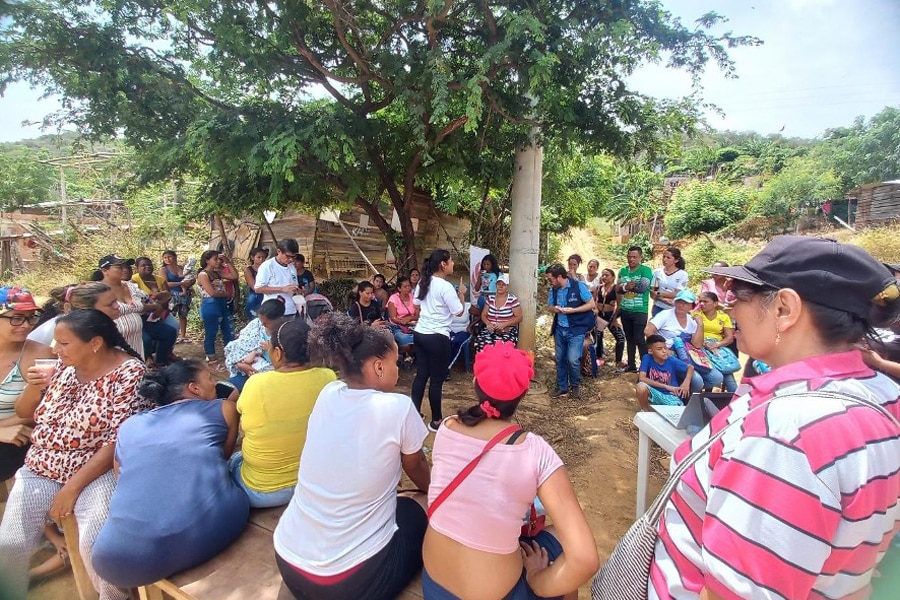
This month we also saw the graduation of the 2022 Chicago Peace Fellows! After embarking on a five-month learning and sharing journey together, their achievements were celebrated at the Chicago History Museum.
October
This month the Goldin Institute turned 20! For the past two decades the Goldin Institute has adopted an approach which is grassroots-led and embedded in kindness, compassion and learning, from everyone but most especially those closest to the issues. We promote the voices of those excluded voices who often have the most at stake in making progress and ensure that they have leadership roles in every social change movement. Which is why it is extremely exciting to celebrate 20 years of the Goldin Institute.
The Chicago Peace Fellows Mutual Aid Collaborative also launched Generation NOW, an idea conceived by Messiah Equiano, a 2021 Chicago Peace Fellow, which will provide opportunities for young people to write and produce a teen talk show addressing everyday issues that teenagers face. We also celebrated the Chicago Day of the Girl with Chicago Peace Fellow La’Keisha Gray-Sewell’s organization (Girls Like Me, Inc) hosting an event to both celebrate Black girls in the city and ensure their sense of belonging.
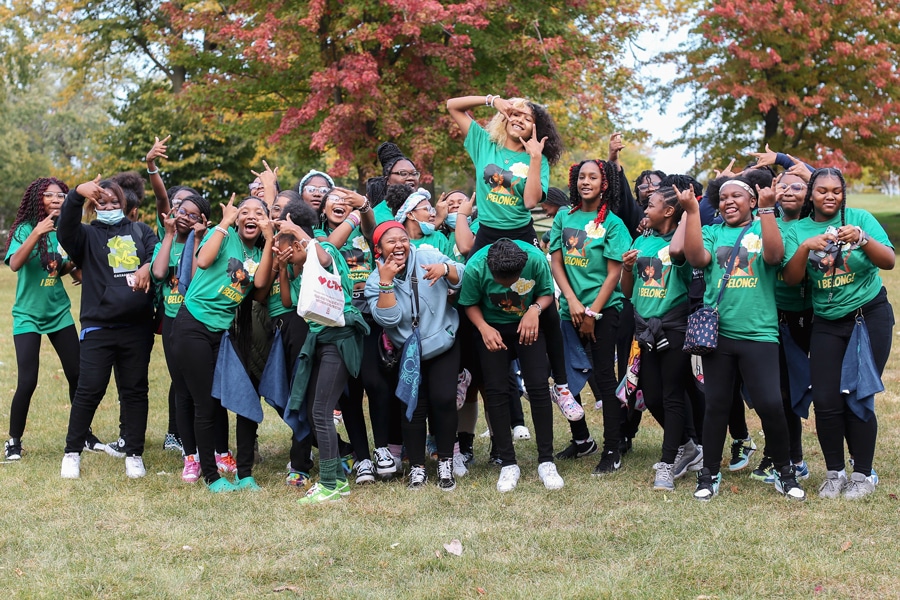
The first annual Sukkah Design Festival was also held this month, on October 9-16, showcasing North Lawndale’s Jewish history and providing social services to the community. Reshorna Fitzpatrick, 2019 Chicago Peace Fellow and Executive Pastor of the Stone Temple Baptist Church, was a member of the organizing committee, which included both community-based organizations and design firms.
November
Our 2022 Global Fellows (English-language cohort) graduated from the Gather program! At the graduation ceremony on 4th November, the 2022 Fellows demonstrated their achievements and shared their aspirations, recognizing how much stronger they now are together.
Global Fellow Oluchi Uzodimma from Nigeria also provided an update on the devastating impact of the recent flooding in Nigeria which has displaced more than 2 million people and damaged over 200,000 homes.
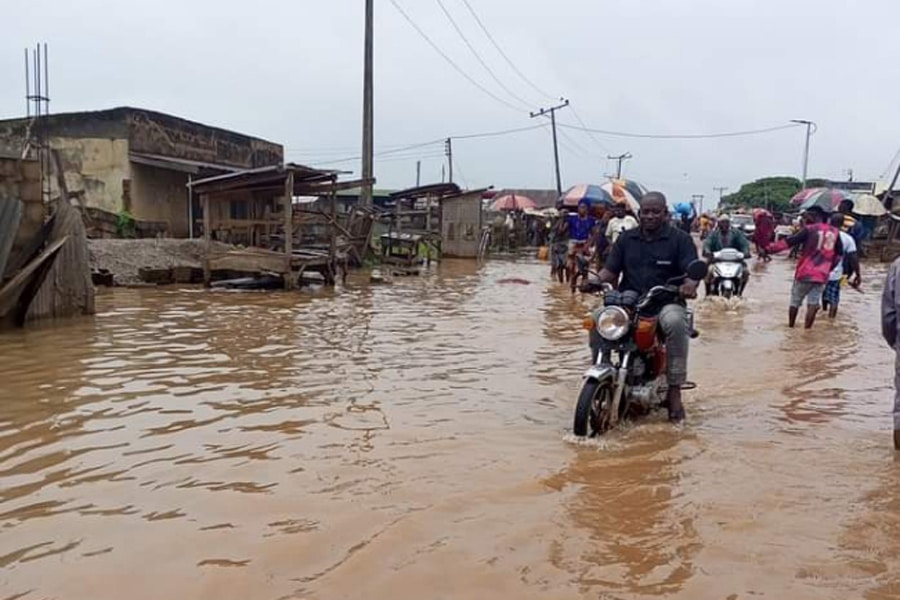
December
As we wind down to conclude the year, we were honoured to celebrate the achievements of the first Spanish-speaking cohort at their graduation ceremony on December 10th. The ceremony included performances in the form of song, freestyling, music, and poetry and reflected on what the Fellows had achieved, individually and collectively.
We remain humbled and honoured by the achievements of our global network of Fellows and we have much to be thankful for, especially the support of our global network of friends and colleagues. We would like to give a special thanks to all our sponsors and supporters for ensuring our leaders were able to continue their much-needed activities throughout the year.
Celebrating the 2022 Chicago Peace Fellows Graduation
By Jamika Smith, Tina Gulley-Augustus, Don Williams, Jacqueline Williams, and Cree Noble
On September 29th, 2022, 14 grassroots leaders from across Chicago gathered at the Chicago History Museum to celebrate their achievements as the fourth cohort to graduate in the Chicago Peace Fellows program.
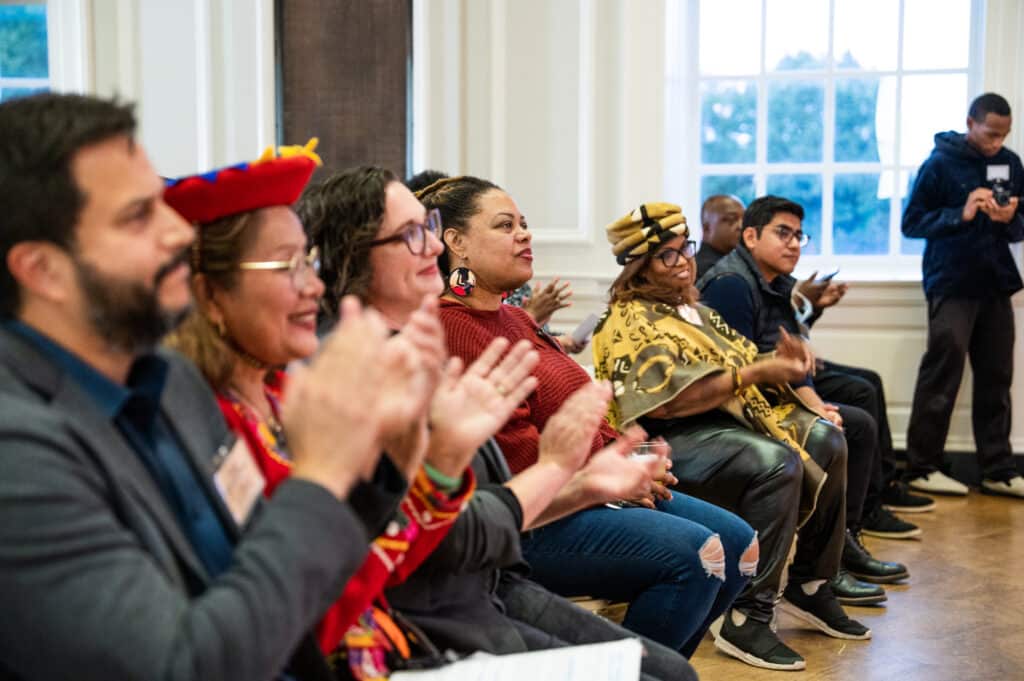
The Chicago Peace Fellows (CPF) program spanned over six months with over 25 workshops, partnership meetings, and discussions that helped Peace Fellows to deepen their shared understanding of grassroots leadership, violence prevention and community driven social change.
“Some of the greatest learning experiences were the collaboration of the Peace Fellows in developing community asset maps and recognizing how rich our communities look when we viewed them from an asset standpoint instead of a deficit. Our communities are so rich in knowledge, resources, and talents.” -- Tina Gulley Augustus, 2022 Chicago Peace Fellow
This was the second year that the Chicago Peace Fellows Graduation was hosted at the Chicago History Museum. The space was filled with laughter, cocktails, hors d'oeuvres, and music by a performance from a youth band from Segundo Ruiz Belvis Cultural Center playing Caribbean Jazz. The balcony gallery, just before you enter the great hall, was lined with pictures of the 2022 Peace Fellows. The gallery is named after the late Mrs. Josephine Baskin Minow, a community organizer, and advocate, who fought for many years for social justice and equal rights, to improve the quality of life for others much like the Chicago Peace Fellows.
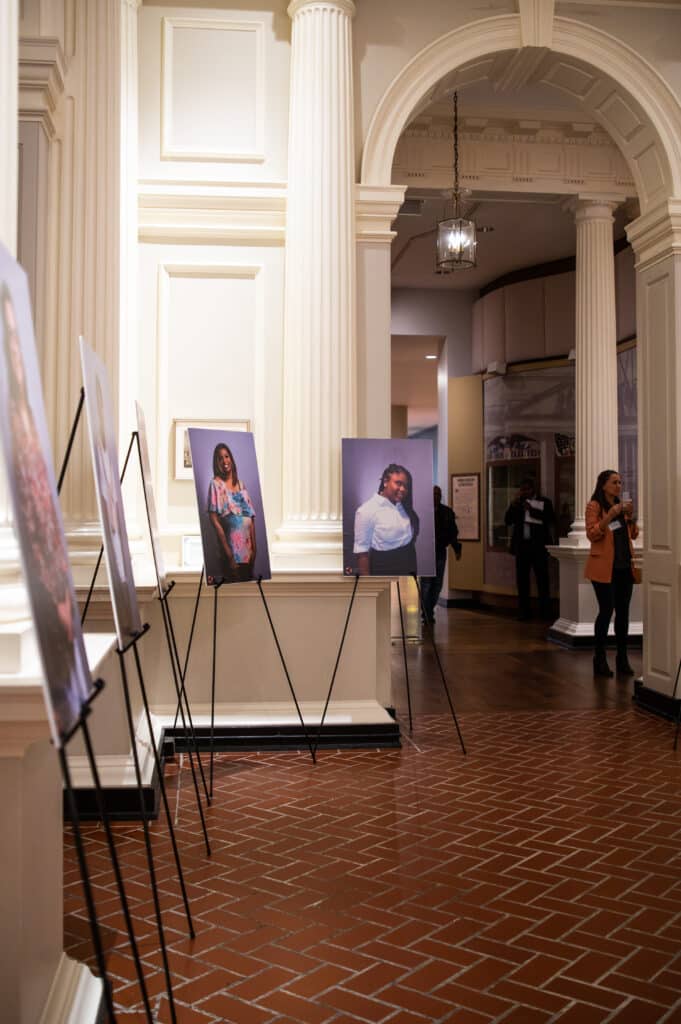
The graduation program was created by the Fellows to highlight their experiences, learnings and accomplishments. They incorporated personal testimonies, group facilitation, spoken word, asset mapping, and interactive programs into the design of the agenda. These activities were chosen due to the influence they had on each Fellow and how they allowed us to connect to our communities, family, and friends who were all in attendance at the graduation ceremony.
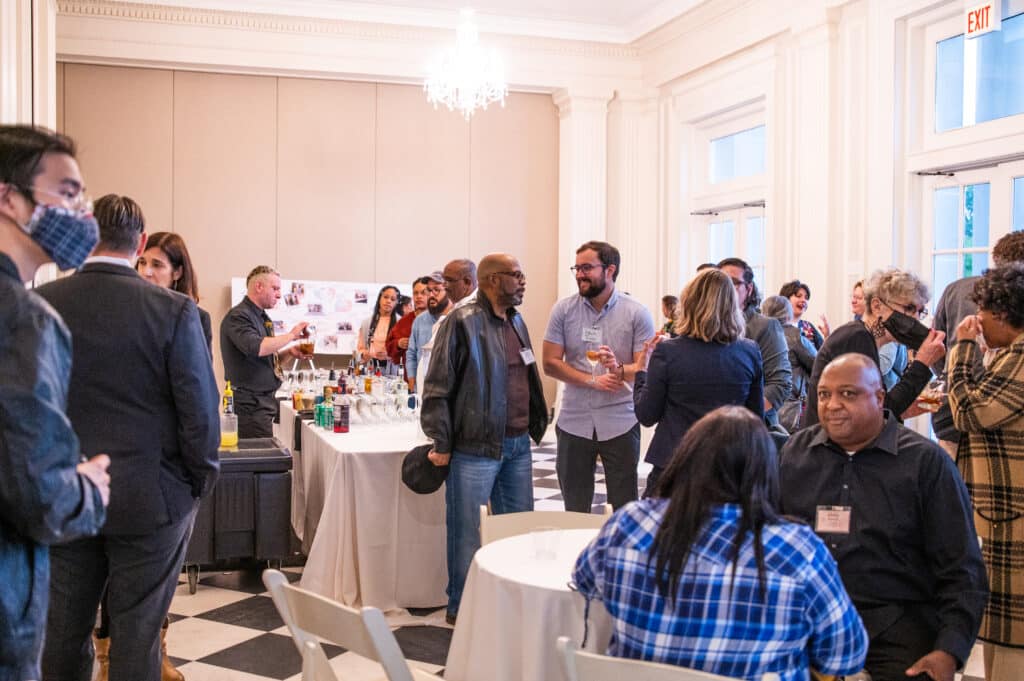
The ceremony began with a welcome remark from the Director of the Chicago Peace Fellows, Burrell Poe, who spoke about the impressive effort, work and conversations this group of fourteen leaders had undertaken over the past five months. Following Burrell, Fellow Lindsey Joyce opened the space with a prayer and reflection. After this opening reflection, Chicago poet Brynn Baltimore offered a powerful spoken word piece performance. The fourth speaker was CPF Don Williams, who provided a personal testimony about the loss of his son and how he had turned pain into purpose.
“My tribute to my son Deon J. Williams left me with a lot of mixed emotions about March 9, 2019… getting up there speaking about it brings some comfort and steps of me getting some closure. Deon was my baby. I wish things would have been different that day and that he would still be here. But that is why I started the Deon J. Williams Foundation, so that I could bring some awareness to juvenile law to change. I want to give a special thanks to my newfound family, the Peace Fellows. Thanks for allowing me to share my story. I hope I can impact someone.” - Don Williams (2022 Chicago Peace Fellows)
After Don’s powerful testimony, all 2022 CPF joined on stage to introduce themselves and the community they serve, and answer the question: “If violence disappeared tomorrow, what would be possible in my neighborhood?”, group presentation which was led by 2022 CPF Syliva Del Raso. Once the Fellows had shared their answers, they invited the audience to contribute to the question by writing it on a sticky note and placing it on a poster board.
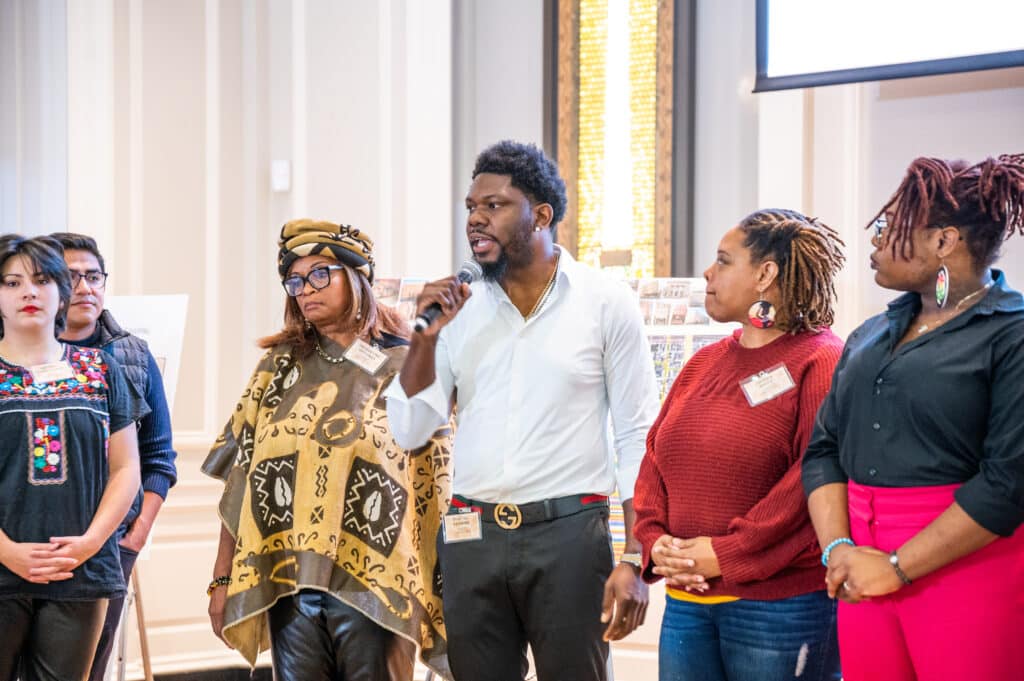
The second part of the ceremony was an explanation and presentation of what asset maps were. Fellows presenting their asset maps included Maria Pike (representing Pilsen), Edwin Martinez, and Sylvia Del Raso (representing Little Village), and Jackie Williams, Jamika Smith, Xochtil Hubbell-Fox, and Tina Gulley-Augustus (representing Austin).
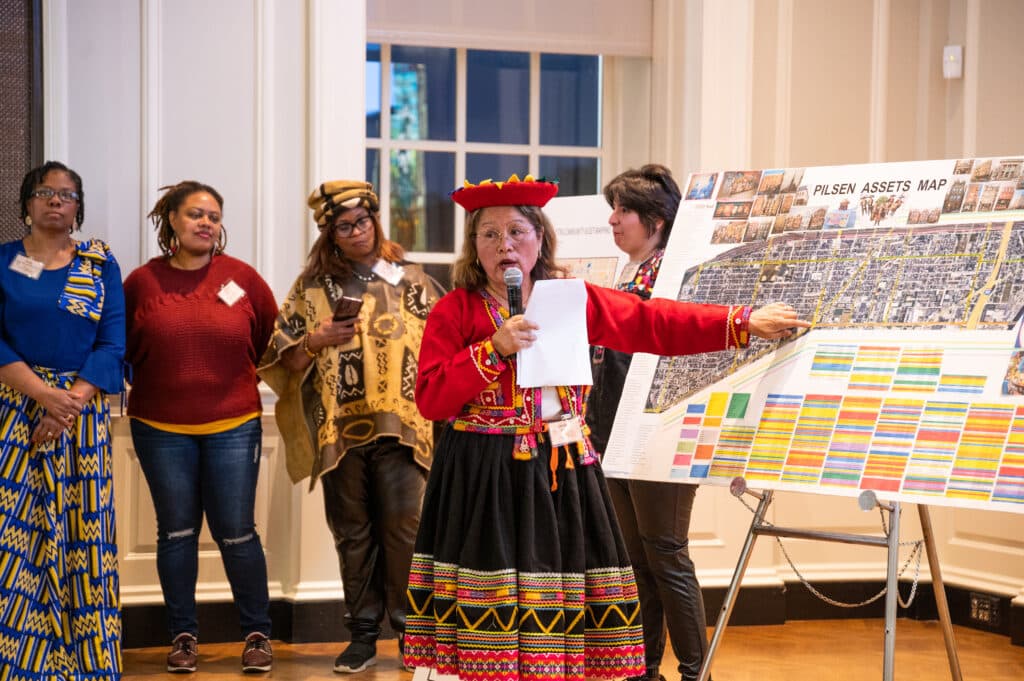
Then CPF Pha’Tal Perkins and CPF Edwin Martinez made closing reflections on what they hope to accomplish as they put their new learnings into practice. Lastly, Jamika Smith unveiled a project she wanted to gift to the 2022 Chicago Peace Fellows.
"Because I gained so much from the overall experience, my Spirit moved me to return the favor by sharing with my cohort and the Goldin Institute leadership a little piece of my heart. I took a skilled craft that has been around since the Middle Ages and I metaphorized it -- did I just make up a word? My cohort and I took an old worn-out chair and told our story, addressing the question “If violence disappeared tomorrow, what would be possible in my neighborhood?” One by one, we discussed the challenges, barriers, and limited beliefs our neighborhoods are struggling with today. Next, I asked them to share with me, if violence was rid from our communities tomorrow how would you feel? And what image and color will represent that feeling for you? After gathering all 18 responses I incorporated them into a design that represented the voices of our 2022 Chicago Peace Fellows. Our Peace Chair will always be an attribute of our journey together. My goal is to take our peace chair on tour in 2023, giving each Peace Fellow the opportunity to house it for a period of time in their organization, as a reminder that we are all connected and still have work to do…Together!” - Jamika Smith (2022 Chicago Peace Fellow).
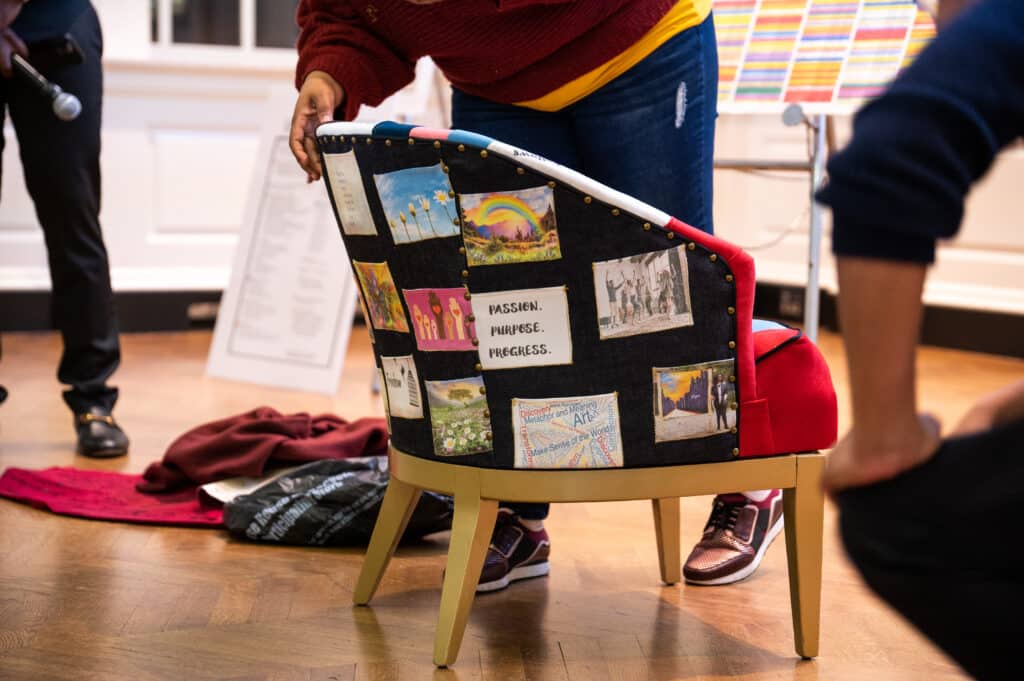
Upon graduation, the 2022 Chicago Peace Fellows now join the Goldin Institute’s Global Alumni Network which consists of over 150 Fellows from over 40 countries around the world. 2022 Chicago Peace Fellows Jacqueline Williams says “I plan to continue to stay in touch with as many people as possible. I have really enjoyed talking and connecting with everyone!
A December To Remember: Mutual Aid Collaborative Organizes a Toy Drive
By Michael Henderson, Director, Mutual Aid Collaborative
Juliet Jones, a 2021 Chicago Peace Fellow Alumni and the Co-Founder and Director of The Original Sixty Fourth Street Drummers, Inc. “wanted to bring children back to play” due to the set back and effects COVID-19 had on kids during the holidays. She thought holding a toy drive to benefit children in under-served communities would be a good way of accomplishing this goal.
Juliet, passionate about making a difference for children, proposed The Universal Toy Drive to the Chicago Peace Fellows Mutual Aid Collaborative. The Mutual Aid Collaborative consists of 60 Black and Brown leaders and committed allies who live and work in the communities they serve on the South and West sides. They have raised over $100,000 to support several active projects, including The Universal Toy Drive.
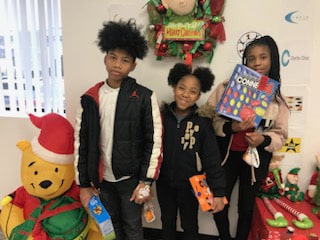
Juliet organized the Universal Toy Drive along with Dr. White, the TEECH Foundation, Clarity Clinic and Bethany Union Church to bring toys to disadvantaged children on the Southside of Chicago. Members from The Mutual Aid Collaborative, including Cosette Nazon-Wilburn of the LUV Institute, Jamila Trimuel of Ladies of Virtue, Gloria Smith of the Black Star Project, and Margaret Murphy-Webb of the Southside Jazz Coalition, all came together as a community to support Juliet. These leaders organized quickly by sharing flyers, sending and processing invitations, and reaching out to their network of parents.
On December 21, 2022, the Universal Toy Drive became a safe space for 113 children to play and receive gifts. The Universal Toy Drive was more than just giving toys away. Juliet knew the children who would be at the toy drive “normally missed out on a lot of things, not just toys, toys were the medium.” It was the intent of Juliet and the Mutual Aid Collaborative to bring joy to the lives of the under-served children and provide them with an opportunity to be kids.
Juliet was overwhelmed with joy as she got an opportunity to witness a village of children from a variety of places. Families who are dealing with HIV, children from the foster care system, children whose parents are incarcerated or in recovery, and other children from the community received all sorts of different toys, gift cards, coats, and other bags of goodies.
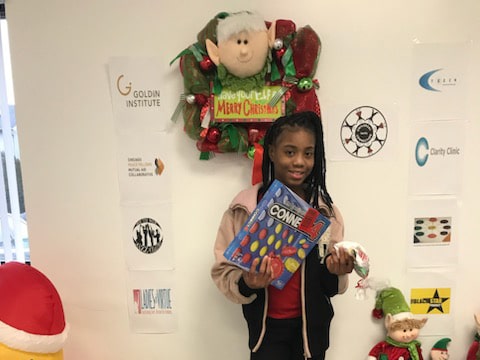
The 113 guests with their families that attended The Universal Toy Drive played board and video games, watched YouTube videos, played hopscotch and jump rope. They drank apple cider, hot chocolate, ate cookies and took pictures with Santa. The energy in the room was so amazing and filled with joy that the children received their gifts but, “didn't leave, they stayed and played, it was great”.
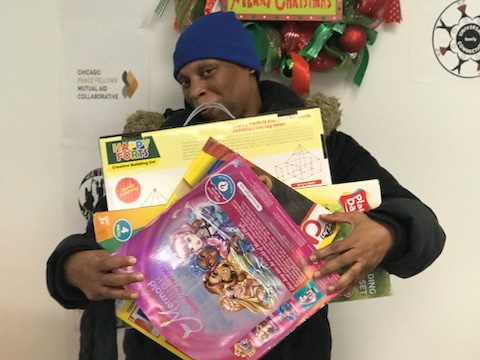
The collaborative efforts to touch the lives of children went beyond the imagination of Juliet’s and the village of local leaders. The Universal Toy Drive was a great success, providing 113 children with toys and gifting additional toys to The Universal Family Connection to use in their playroom for foster children. Juliet is ready for 2023 and has plans to continue to collaborate and organize with other community organizations to hold another Universal Toy Drive.
Celebrating 20 years of grassroots leadership and social change
By Jassi K. Sandhar, Global Research Fellow
It is very rare to find organizations like the Goldin Institute. As an employee of the Institute, I promise this is not a biased opinion. Having worked in the non-profit sector for 12 years, being involved in various social justice and human rights projects, the Goldin Institute has stood out as an organization which embodies principles of justice, fairness, equity, and kindness both within the Institute itself and in the work we do.
The importance of adopting grassroots approaches in social justice work is becoming increasingly recognized, but the approach taken by the Goldin Institute over the past two decades goes beyond that. It is grassroots-led and embedded in compassion, kindness and learning, from everyone but most especially those closest to the issues. We promote the voices of those often excluded who have the most at stake in making progress and ensure that they have leadership roles in every social change movement. Which is why it is extremely exciting to celebrate 20 years of the Goldin Institute.
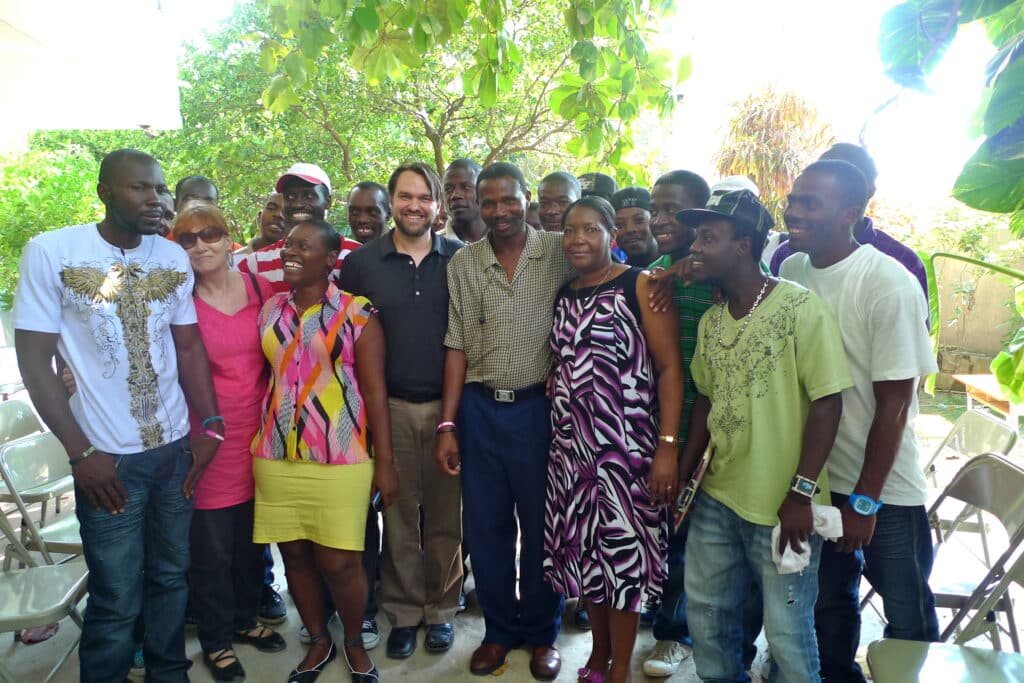
Our commitment to community-driven social change was foundational from our very inception. In October 2002, grassroots leaders from over 25 cities around the world convened in Chicago to learn from each other to collaboratively determine the mission, values and strategy of what became the Goldin Institute. The Goldin Institute was born through this conversation as an enduring platform to provide grassroots community organizers with tools and support they need to build meaningful partnerships within and between their cities. Fast forward to today, the Institute has expanded its reach to 150 Alumni leading change in 40 countries (and growing)!
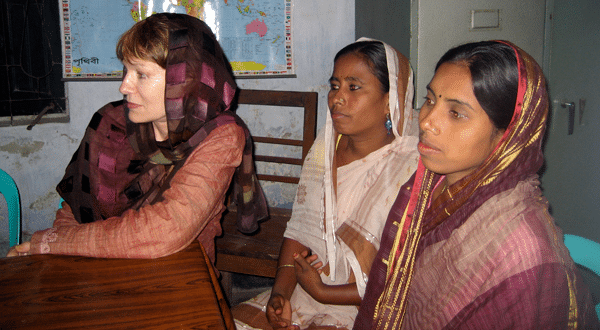
The last 20 years have taken us on an inspiring and incredible journey. We have worked with grassroots leaders in over 50 countries on issues such as:
- Child Soldier Reintegration in Uganda: In the discussions about disarmament, demobilization and reintegration of children used as soldiers in the conflict in Northern Uganda, the voices and perspectives of former child soldiers have too long been ignored. Former child soldiers themselves led a ground-breaking oral testimony process by interviewing over 150 of their peers and together reflecting on common concerns and shared aspirations that led to the creation of YOLRED, the first reintegration and support organization designed and run by former child soldiers.
- Addressing the Water Crisis in the Philippines: In war-torn Mindanao, over 70% of the population lacks reliable access to safe drinking water. Through the leadership of Global Associate Susana Anayatin and her team, over 40,000 people now have access to safe water in the region through the installation of water wells at over 140 local schools. In addition to providing a critical resource, this project brings together all sides of the conflict who are working together to “win the peace”.
- Tackling Gender-Based Violence in Haiti: Since the January 2010 earthquake in Haiti, women and girls living in the internally displaced persons camps face alarming rates of rape and other forms of gender-based violence. Through the leadership of Global Associate Malya Villard’s and KOFAVIV, men have joined the movement to provide security and advocacy to end all forms of gender-based violence in Haiti.
- Improving Microcredit in Bangladesh: The current global debate about the efficacy of microfinance is marked by the absence of those who have most at stake in the controversy: loan recipients. The Goldin Institute worked with partner organization Nijera Kori to lift up these voices, most often marginalized women, and restore their perspectives, insights and aspirations to the discussion, leading to the return of indigenous community support systems and greater regulation of the microfinance industry in Bangladesh.
- Mutual Aid Collaborative in Chicago, USA: Today, Chicago is stained by an enduring legacy of racial injustice that is laid bare by the disproportionate impact of the twin pandemics of violence and COVID-19 on our communities on the South and West sides of Chicago. In response, the Chicago Peace Fellows launched the Mutual Aid Collaborative as a model of the structural changes they seek, practicing a model of shared leadership, collaborative decision-making and collective action.
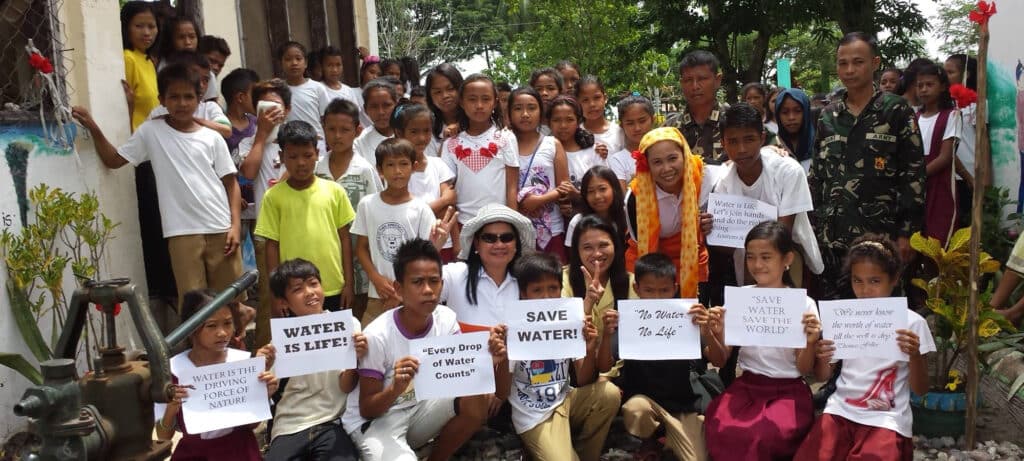
In 2018 we made significant strides in facilitating a global network of community leaders through launching GATHER, a tablet-based mobile learning tool to empower communities of practice. GATHER allows peers to learn, work and reflect together using practical tools. That same year, the Institute launched the Global Fellows program, an international cohort of 20 Fellows who collaborated with one another through a progression of learning about new theories of community engagement, practicing these ideas in their own areas, and reflecting together as a global community of practice.
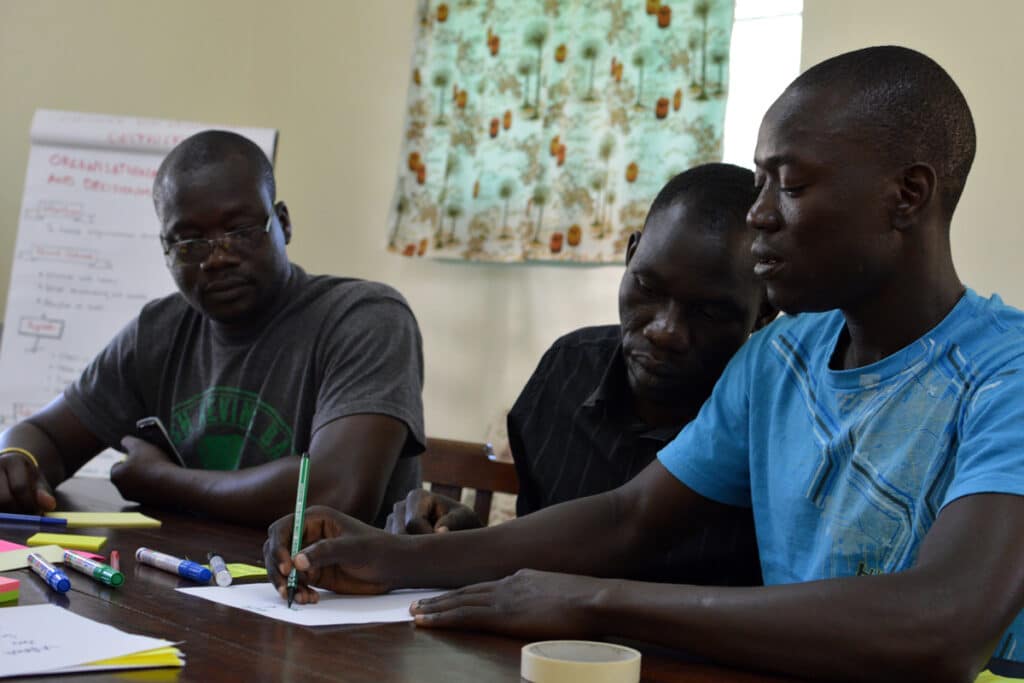
The success of the 2018 pilot has seen the GATHER course run annually with the Chicago Peace Fellows program and the Global Fellows program and, to date, we have trained 150 grassroots leaders in 40 countries in the GATHER curriculum. These grassroots leaders are local community or civil society leaders and practitioners, and represent a diverse group of backgrounds, ages, genders, and locations, and work on a range of pressing and urgent social justice issues. We are excited to continue this international Fellows program and excited to see what we can achieve together in the next 20 years.
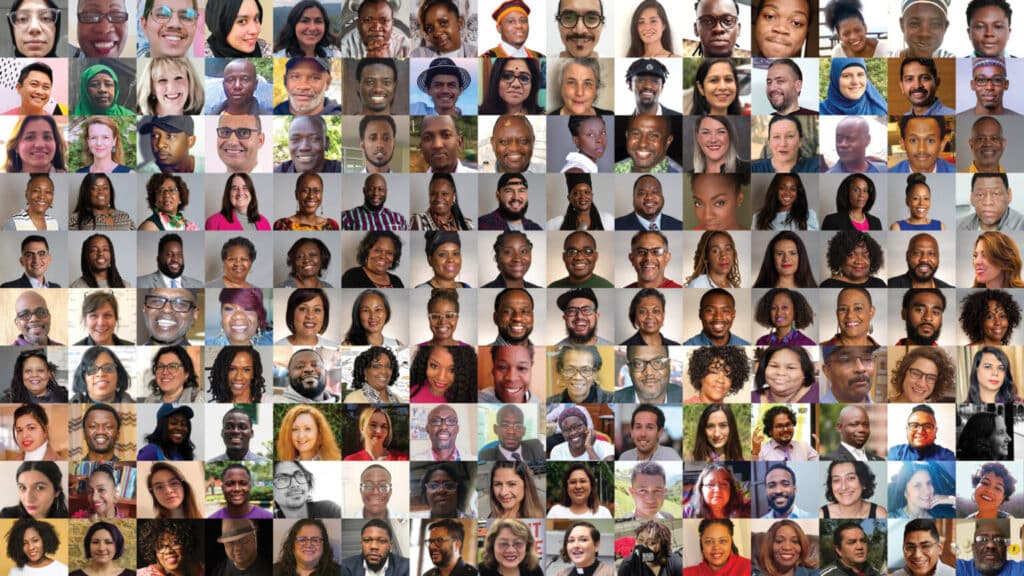
We thank you for sharing the last 20 years with us; we are particularly thankful for the continued commitment of our supporters who have stood beside us and ensured the vital work of our global network continues.
“Malya Villard Appolon, the founder of KOFAVIV (women's commission of victims for victims in Haiti), wishes the Goldin Institute a happy 20th anniversary for the good work it is doing around the world. It is because of the Goldin institute that KOFAVIV still exists today. It is still helping women who are suffering from tragic violence under armed gangs who are doing violence in all forms especially sexual violence that does not give chance to neither women nor girls. I will never regret that day Goldin Institute came our way. I am very proud of the Goldin Institute. I urge all organizations in the world to support Goldin to continue to bring change to the most vulnerable people within the Haitian society and other global communities. Thank you.” - (Malya Villard Appolon, Global Associate from Haiti).
Mutual Aid Collaborative Launches Safe Cycling Project
By Zeki Salah, Mutual Aid Collaborative Facilitator
On April 14 at 6:15 am, Juliet Jones received a call from her son and was surprised to hear a police officer on the other end of the line. He asked if she knew a man named Julien Jones. When she replied that Julien was her son, the officer notified her that he had been hit by a car while riding a bike to work and was on his way to the emergency room.
Julien resided in North Chicago and did not have an affordable way to get to work, leading him to use a bicycle and become seriously injured in his accident. When Juliet first saw Julien after his accident, he was bruised, unconscious, and required a cranial operation. She nearly fainted after hearing the news. Julien was in the hospital for three weeks, from April 19 - May 2. Then from May 2 – May 23, 2022, Julien received inpatient therapy at the Shirley Ryan Ability Lab. He is out of the hospital now but sustained a traumatic brain injury.

Juliet, a 2021 Chicago Peace Fellow, reflected on the accident that affected her son and wondered what would have happened if Julien had worn a helmet. The thought of averting similar tragedies motivated her to launch a Safe Cycling project through the Chicago Peace Fellows Mutual Aid Collaborative. Regarding her decision to begin the project, Juliet stated:
Violence is violence. A traffic accident or bike accident are not the same as gun violence, but those accidents are violent and traumatic and I want to do something about that.
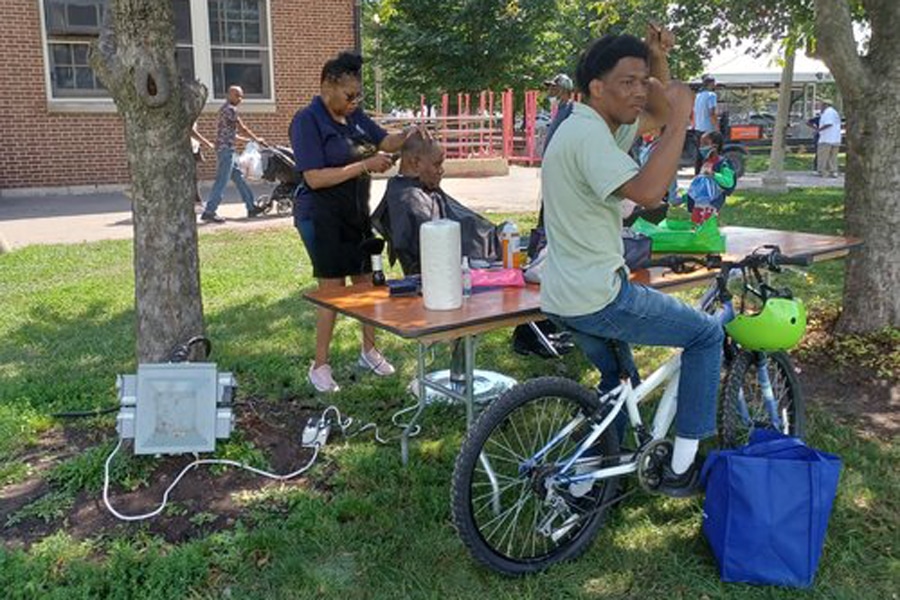
Juliet and her organization, the Original Sixty Fourth Street Beach Drummers, Inc., are now working with the Mutual Aid Collaborative to distribute helmets throughout Chicago. The Mutual Aid Collaborative consists of 60 Black and Brown leaders and committed allies who live and work in the communities they serve on the South and West sides. They have raised over $100,000 to support several active projects, including the Safe Cycling project. The Mutual Aid Collaborative met and collaboratively voted in May to fund the Safe Cycling project and their effort to purchase helmets and distribute them to communities around Chicago.
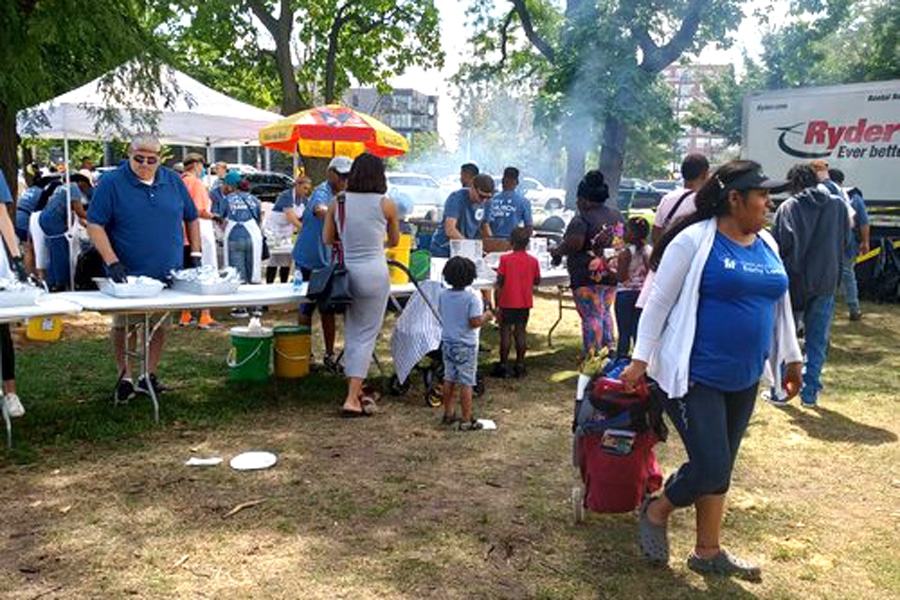
The Safe Cycling project focuses its resources on the South and West Sides of Chicago and aims to partner with community leaders to help distribute helmets. Their first event was at the 27th Ward Community Day on August 27. Juliet found a table at the Community Day by messaging Alderman Walter Burnett, Jr., who she had previously met through her time as a Chicago Peace Fellow.
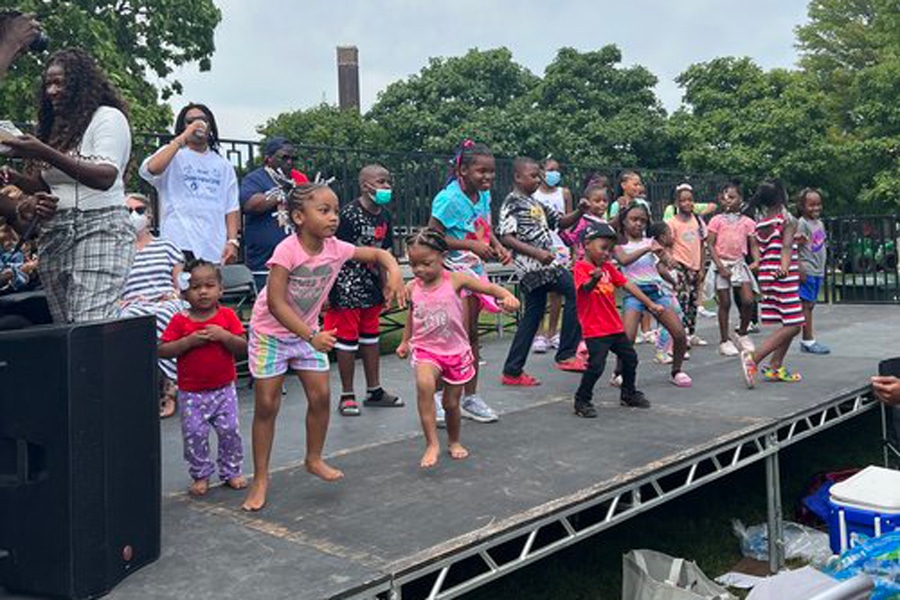
At the Community Day, Juliet was able to hand out 55 helmets:
People were really excited and surprised they could get a helmet for free. Some people were on roller skates, some people were on motor scooters, and they all got helmets.
Juliet also brought other safe cycling activists to the community day by contacting the Chicago Department of Transportation’s SAFE Ambassadors program. Though the SAFE Ambassadors typically work with schools to provide bicycle safety programs, Juliet reached them and discovered they also do other community-based events. Together, both the Safe Cycling project and SAFE Ambassadors made sure everyone at the event interested in receiving a helmet got one. Juliet was ecstatic with their partnership and spoke about how the two tables complemented one another: “When the SAFE Ambassadors didn’t have helmets that fit, they sent people to my table because I bought helmets of all sizes.”
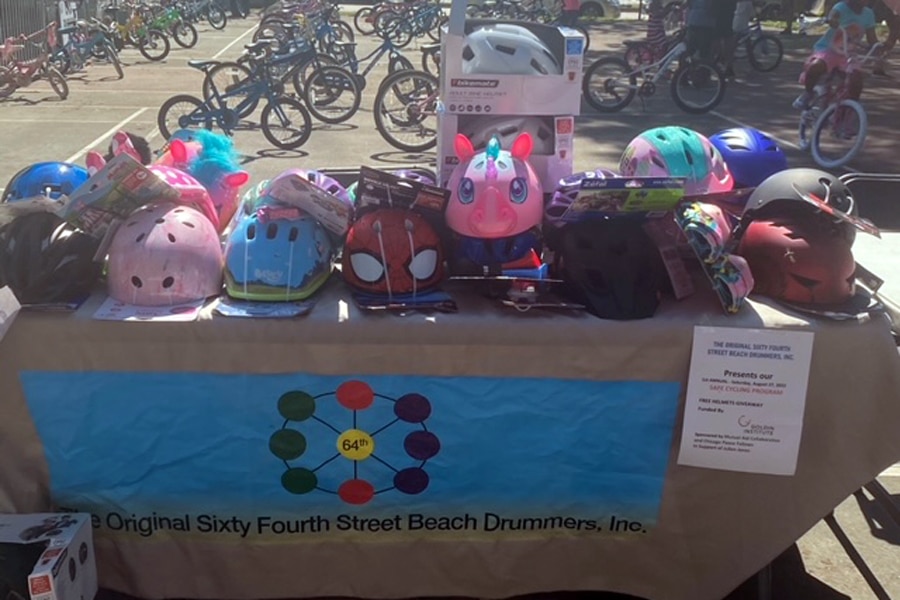
On September 17, the Safe Cycling project partnered with Margaret’s Village to offer helmets to residents of South Chicago. Margaret’s Village is a shelter that provides transitional housing for homeless women, children, and families. Juliet connected with the organization through her work doing HIV education and testing at a social services agency. She spoke with Angela Hicks, Executive Director of Margaret’s Village, and offered for the Safe Cycling program and SAFE Ambassadors to attend their annual Peace Fair. The Peace Fair, a block party that offers violence prevention programming, was an ideal venue to provide bike safety materials and education. When Angela accepted her offer, Juliet organized another table for the Safe Cycling project and gave away 28 helmets and other cycling accessories.
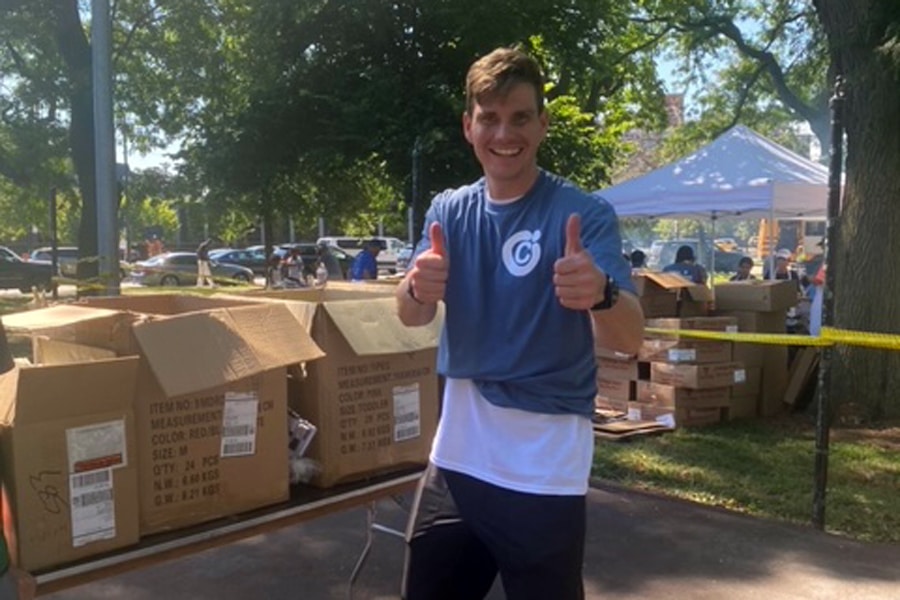
The future of the Safe Cycling project will bring even more collaborations between organizations to distribute helmets in their communities. So far, Juliet has used a range of connections to bring helmets and bike safety instructions to the South and West Sides. She hopes that in the future, she can find even more collaborators and bring more attention to the project. Juliet would like to continue expanding the Safe Cycling project to host an annual event. Through creating grassroots networks with the help of the Mutual Aid Collaborative, the Safe Cycling project has brought needed helmets, bikes, and other resources to people who lacked them. Their work together has played a part in creating safer and healthier communities in Chicago.
